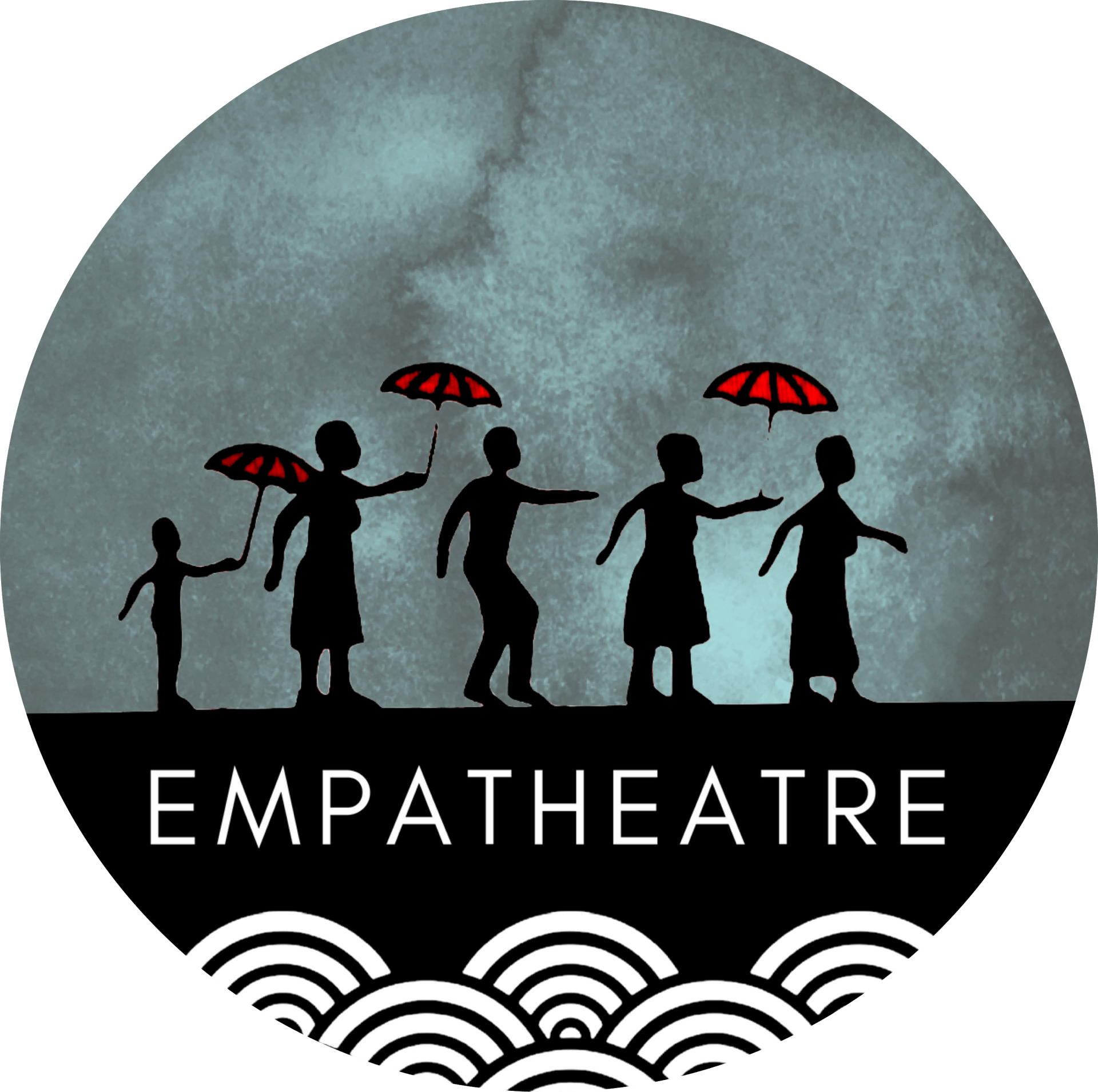Projects

Slide title
Write your caption hereButton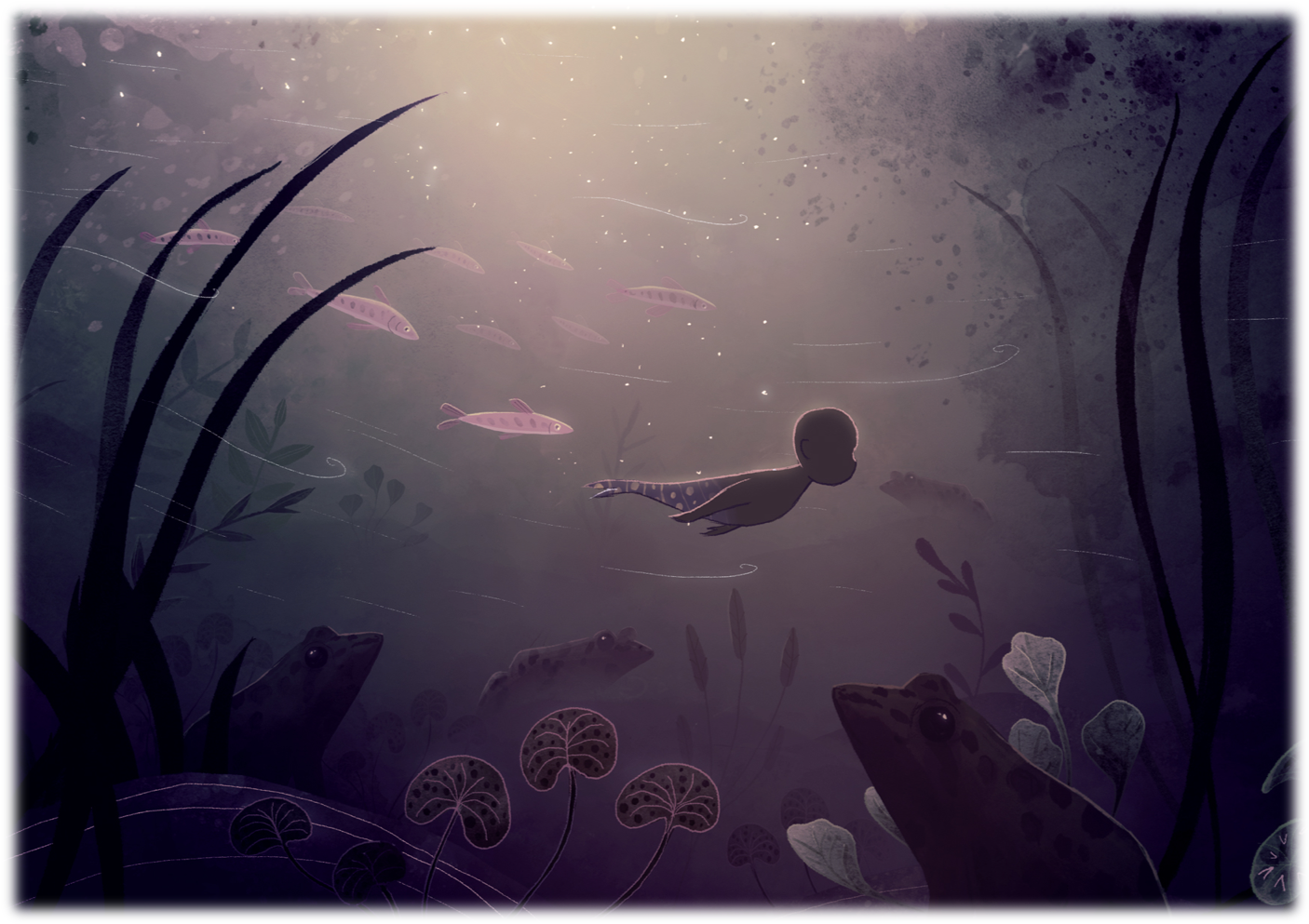
Slide title
Write your caption hereButton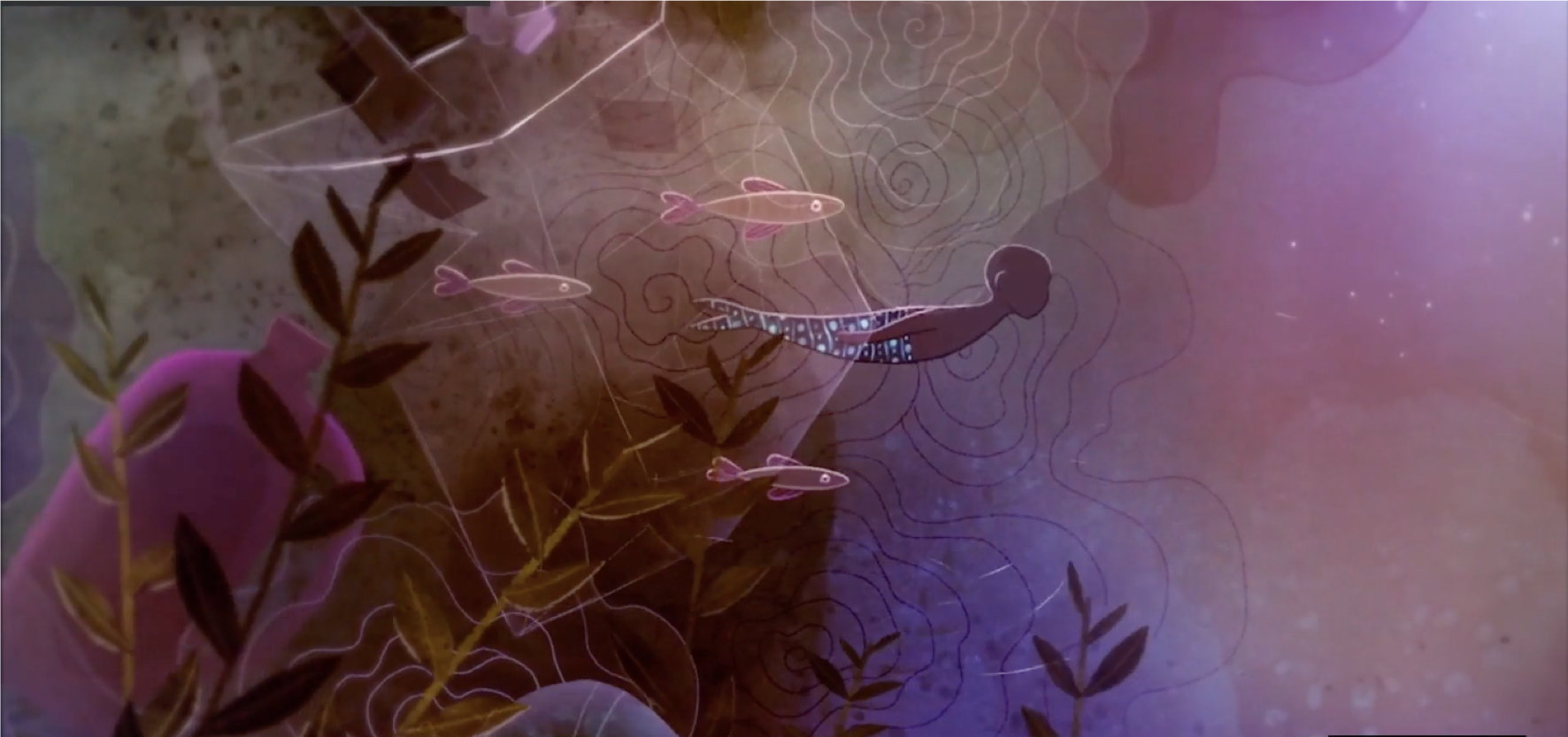
Slide title
Write your caption hereButton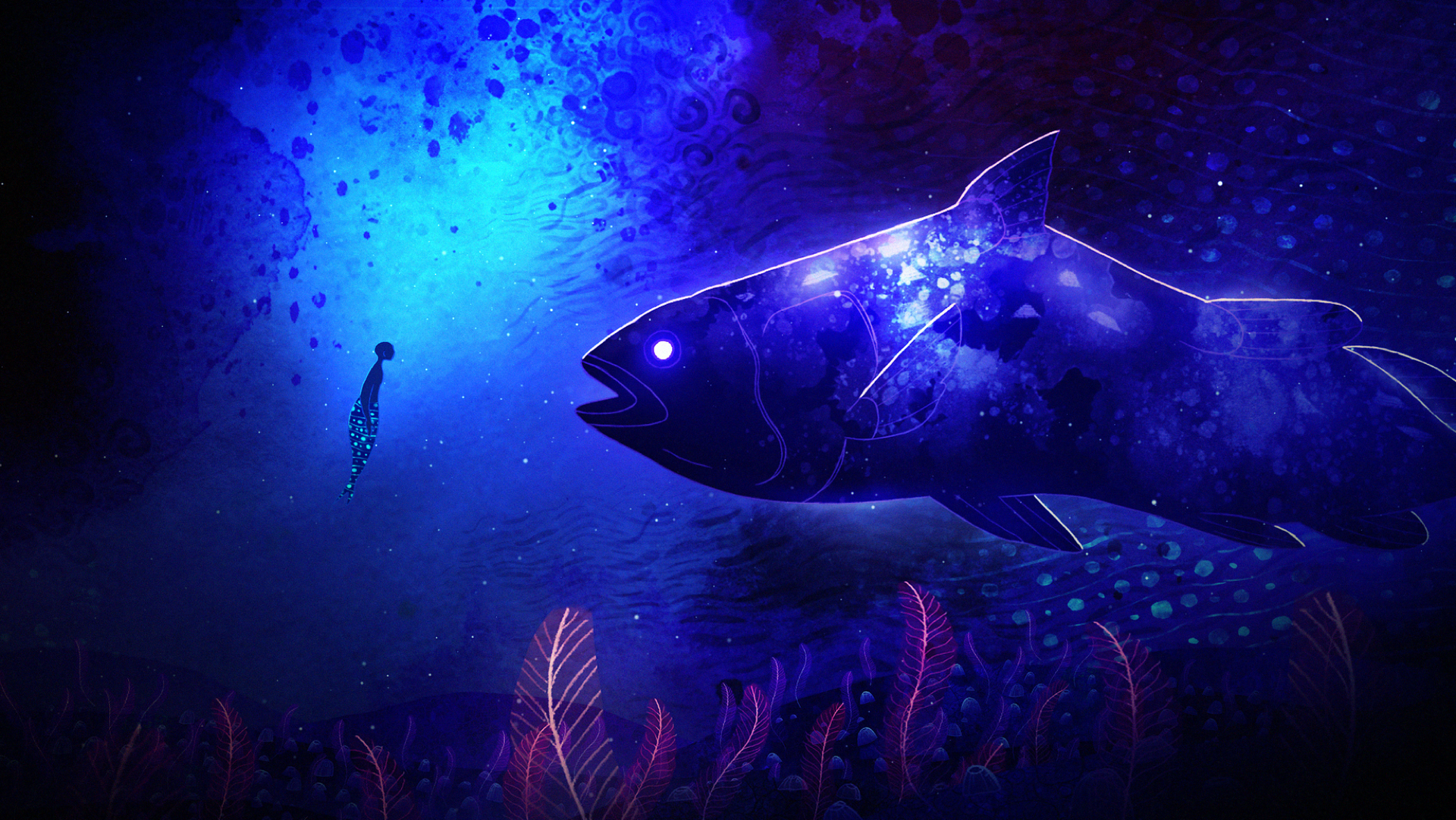
Slide title
Write your caption hereButton
Indlela Yokuphila
Umkhosi Wenala
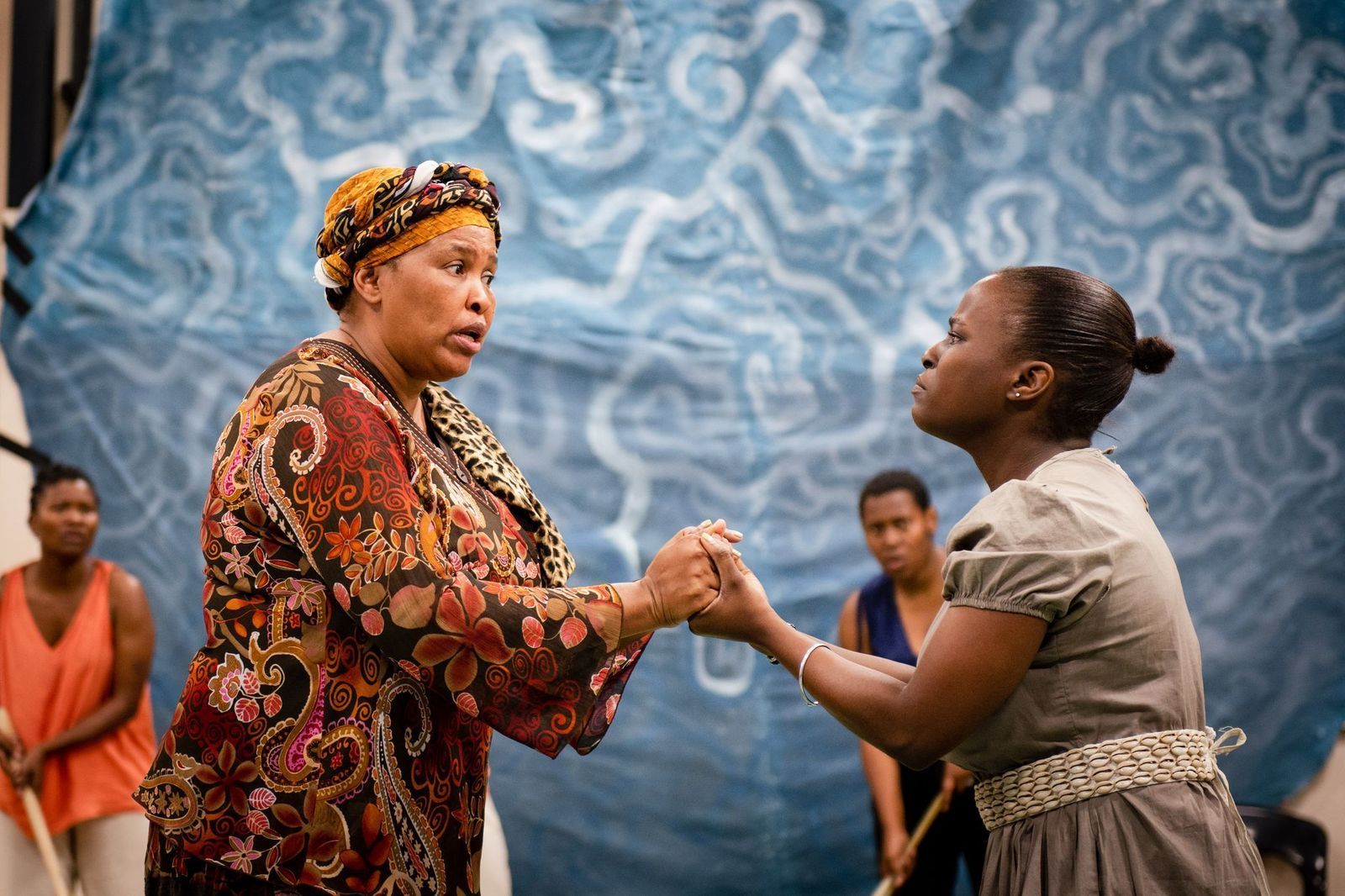
Slide title
Write your caption hereButton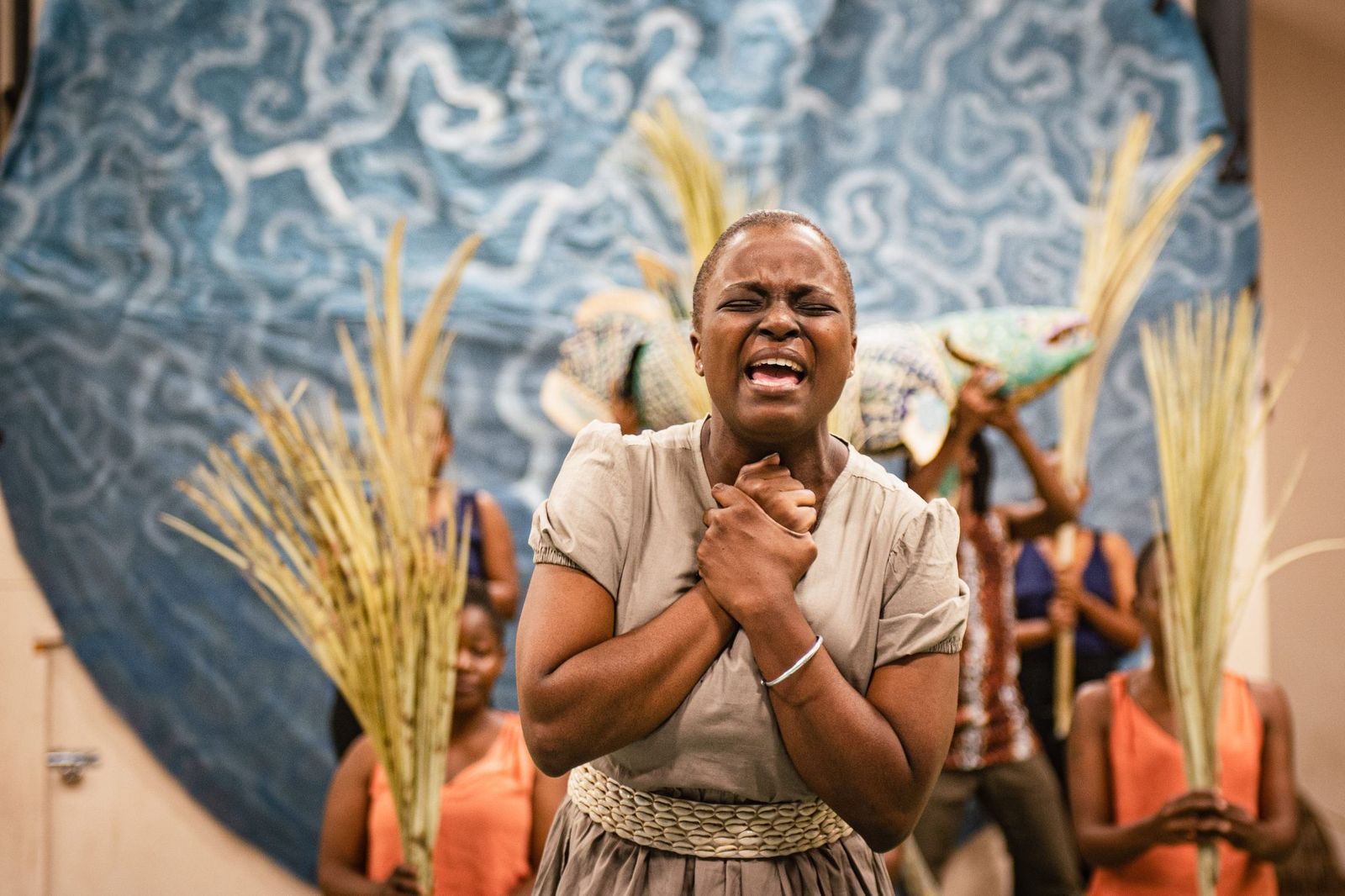
Slide title
Write your caption hereButton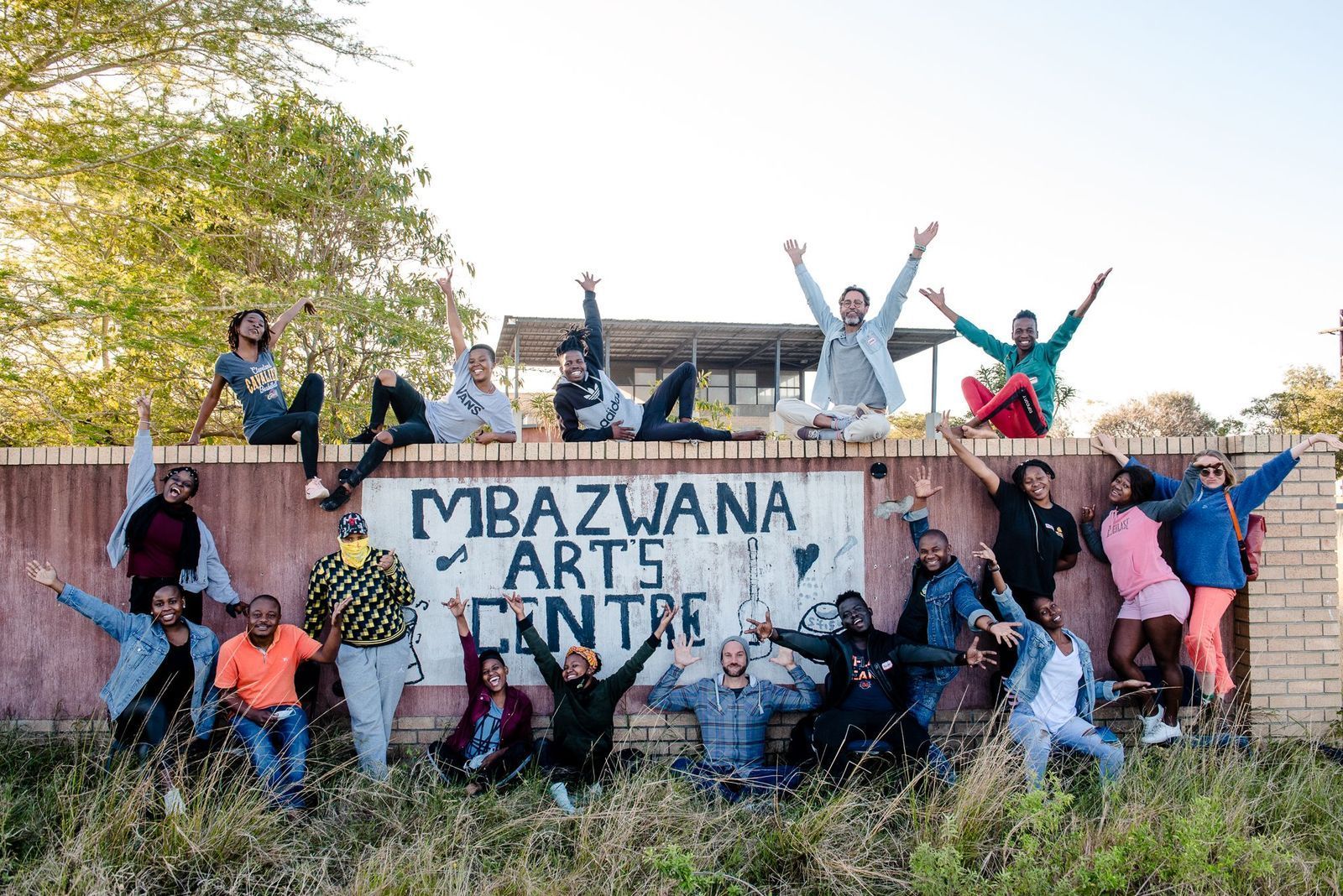
Slide title
Write your caption hereButton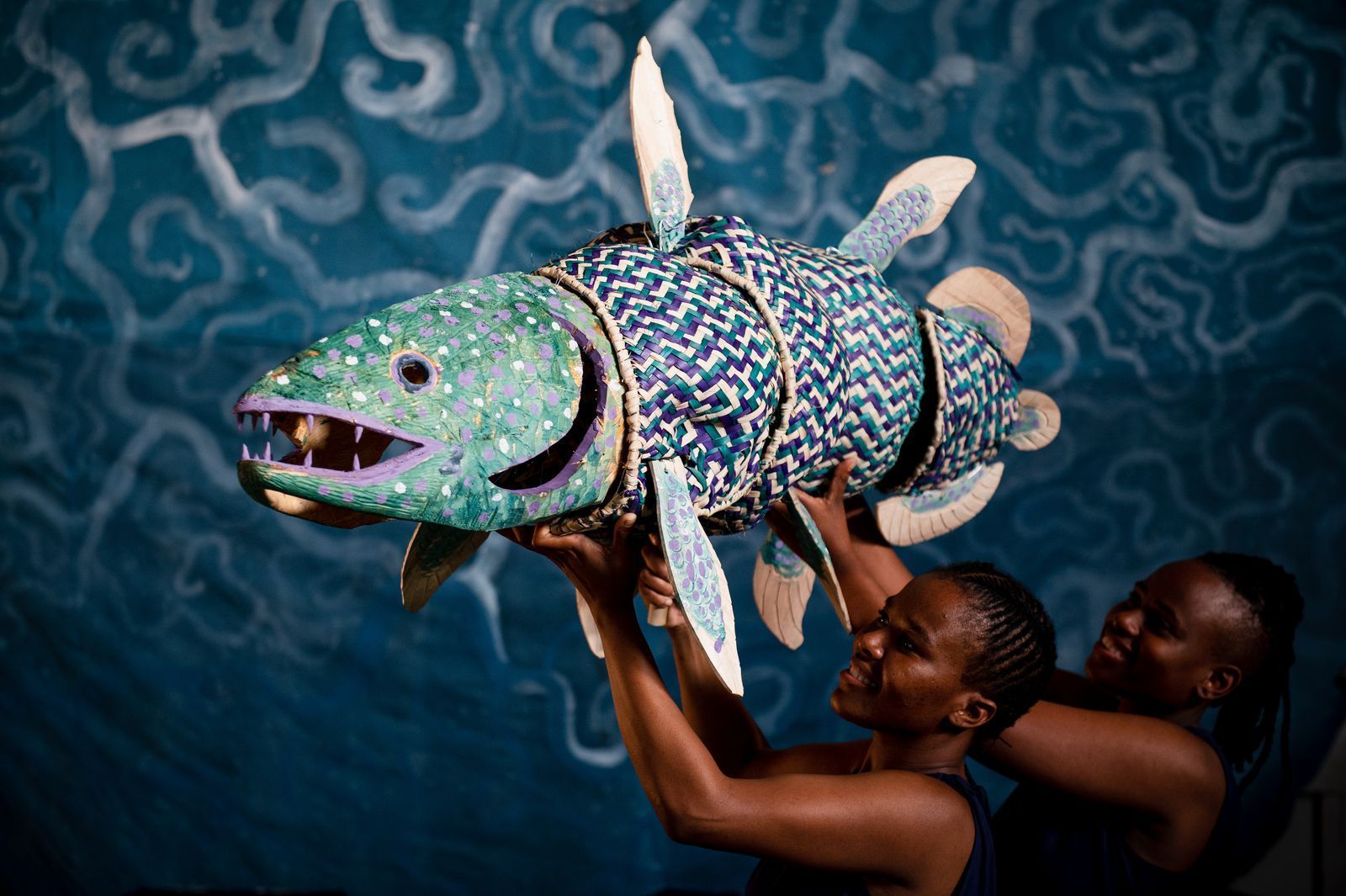
Slide title
Write your caption hereButton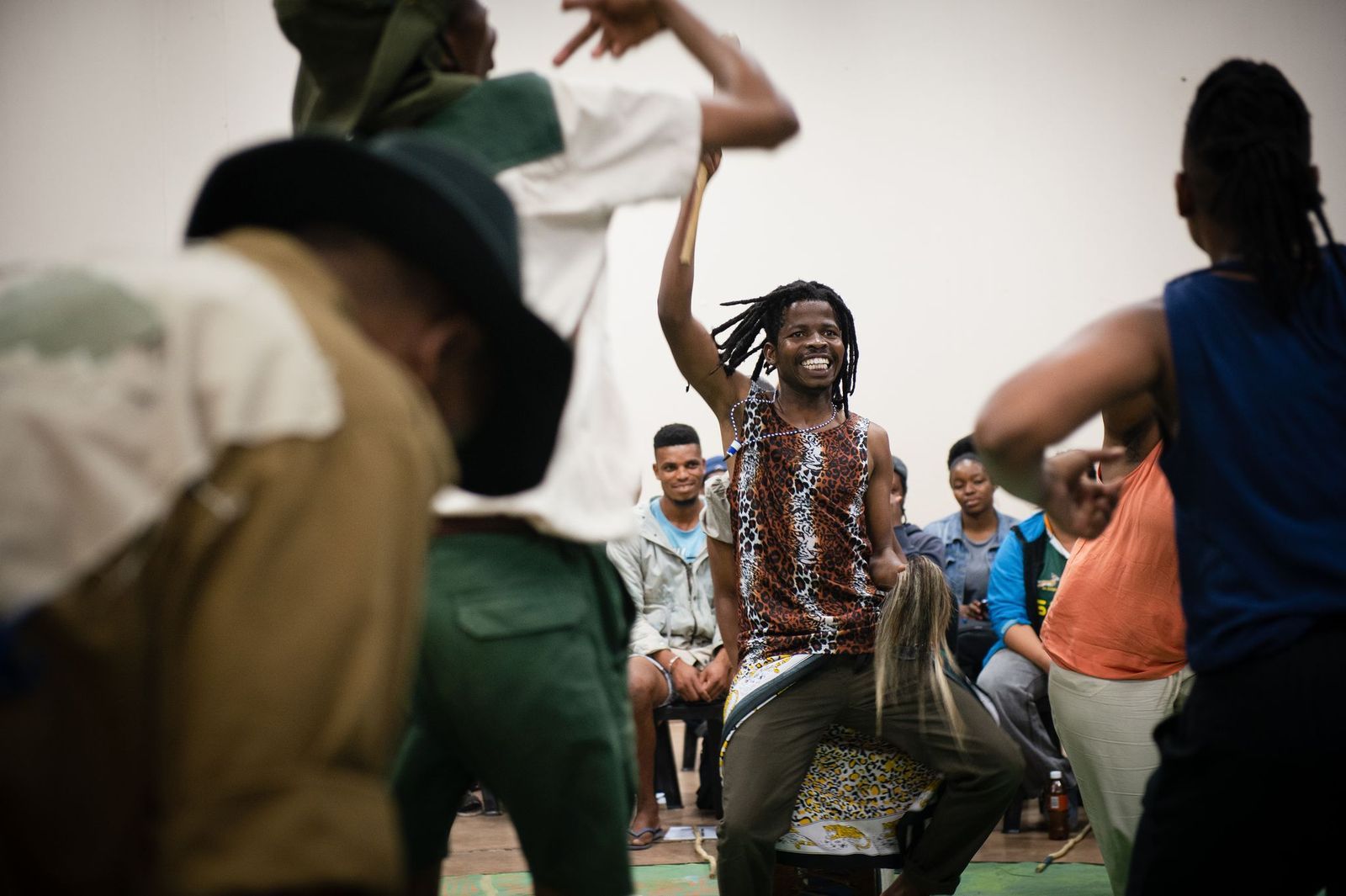
Slide title
Write your caption hereButton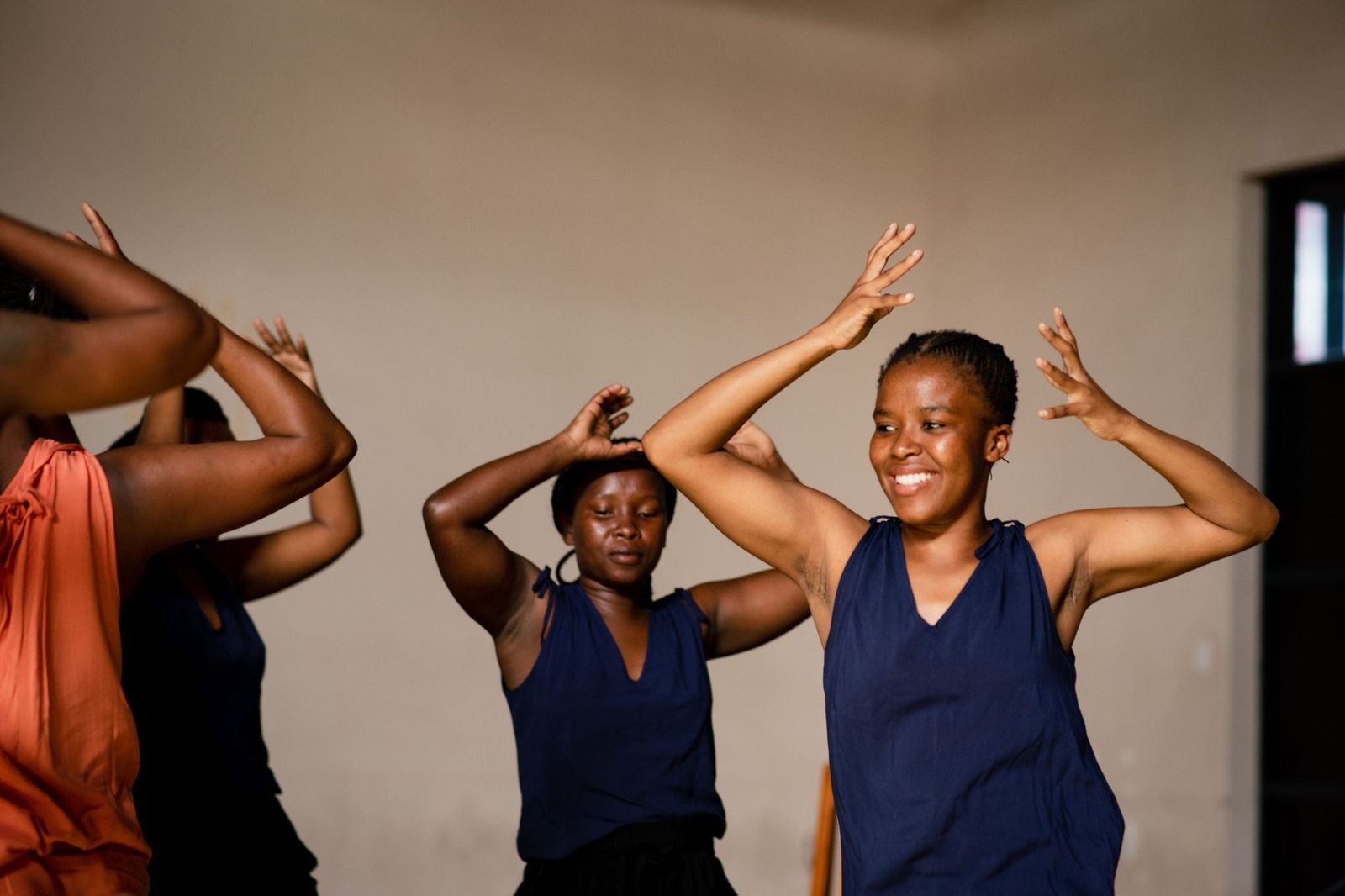
Slide title
Write your caption hereButton
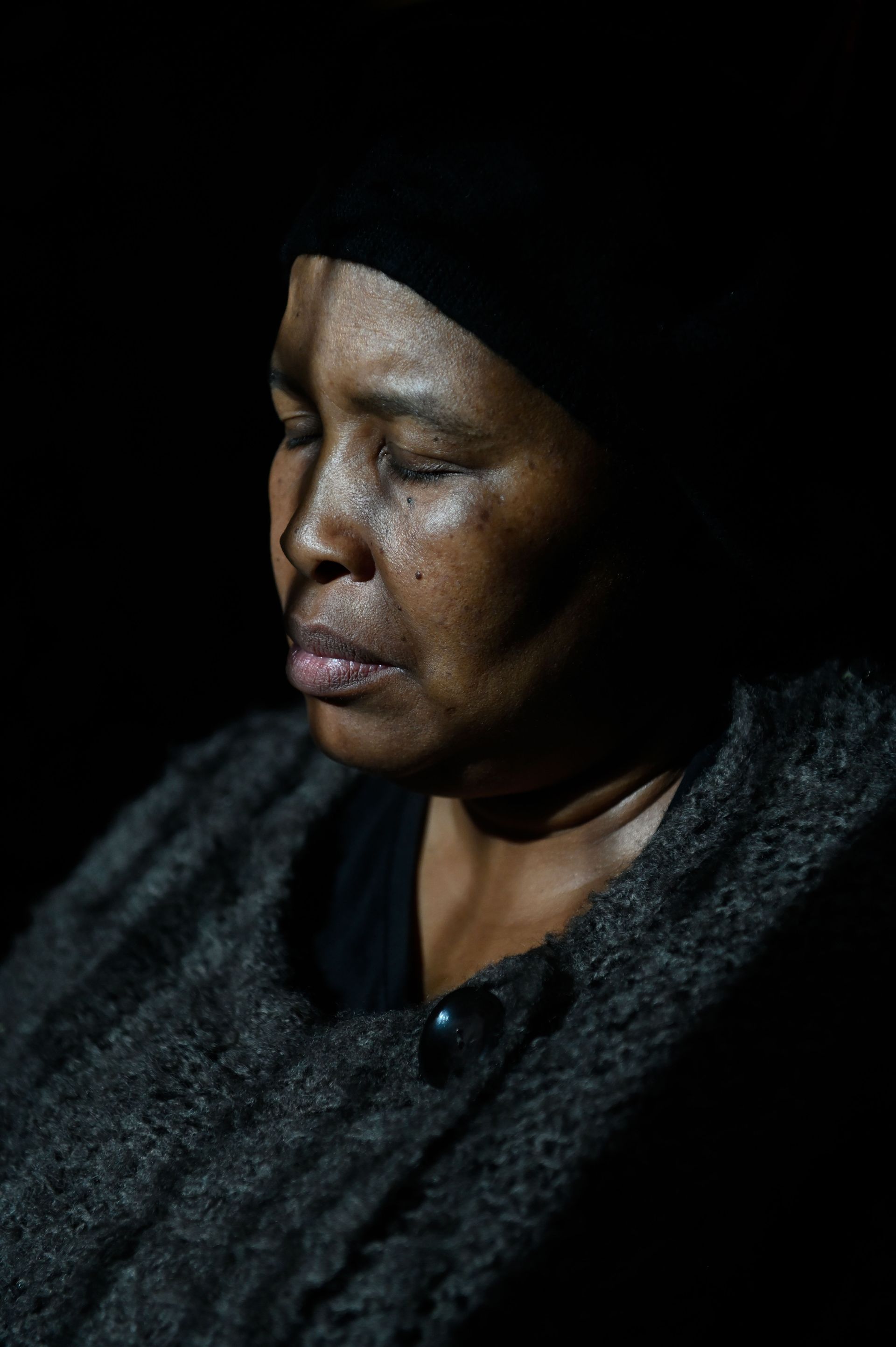
Slide title
Write your caption hereButton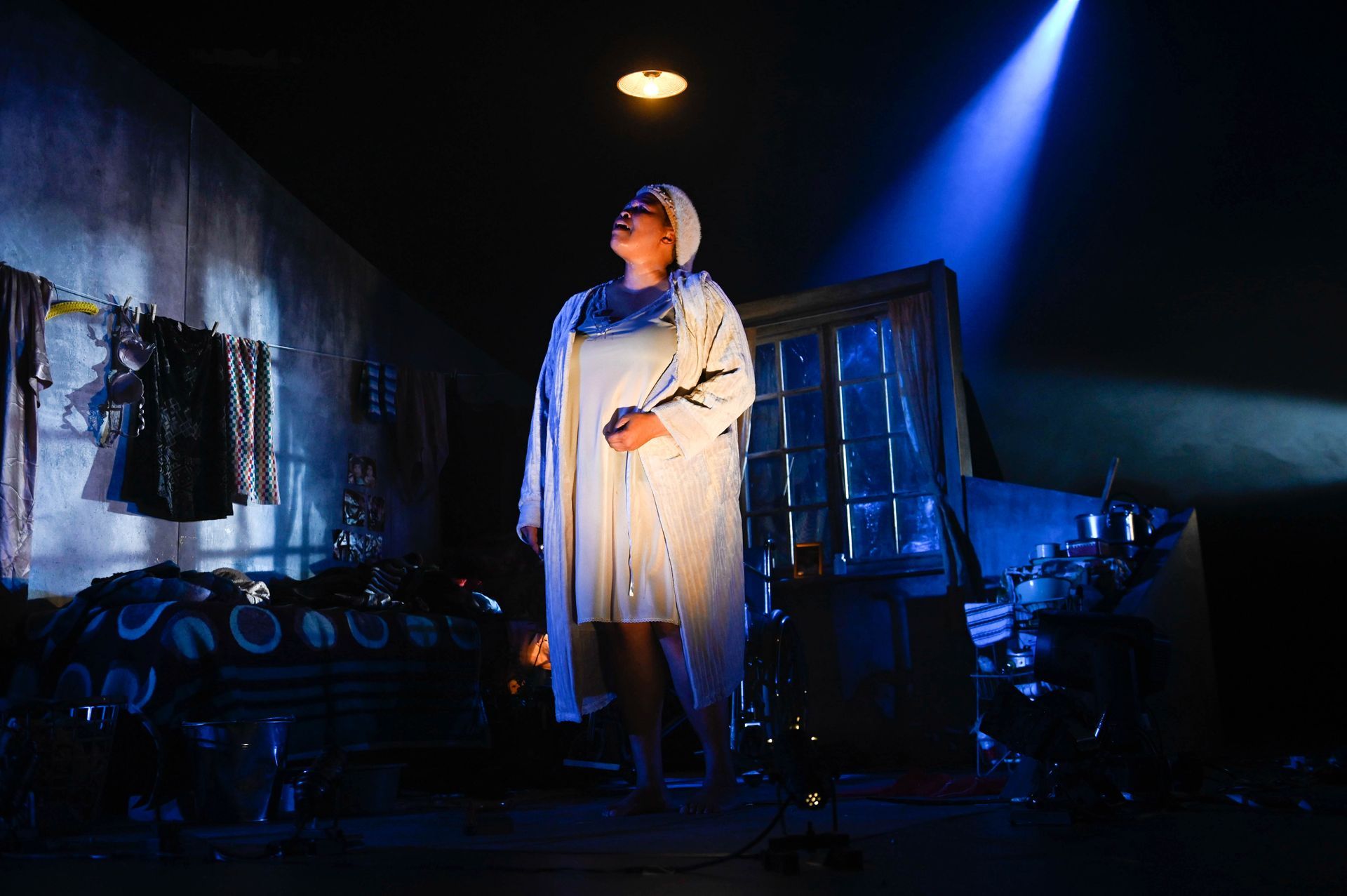
Slide title
Write your caption hereButton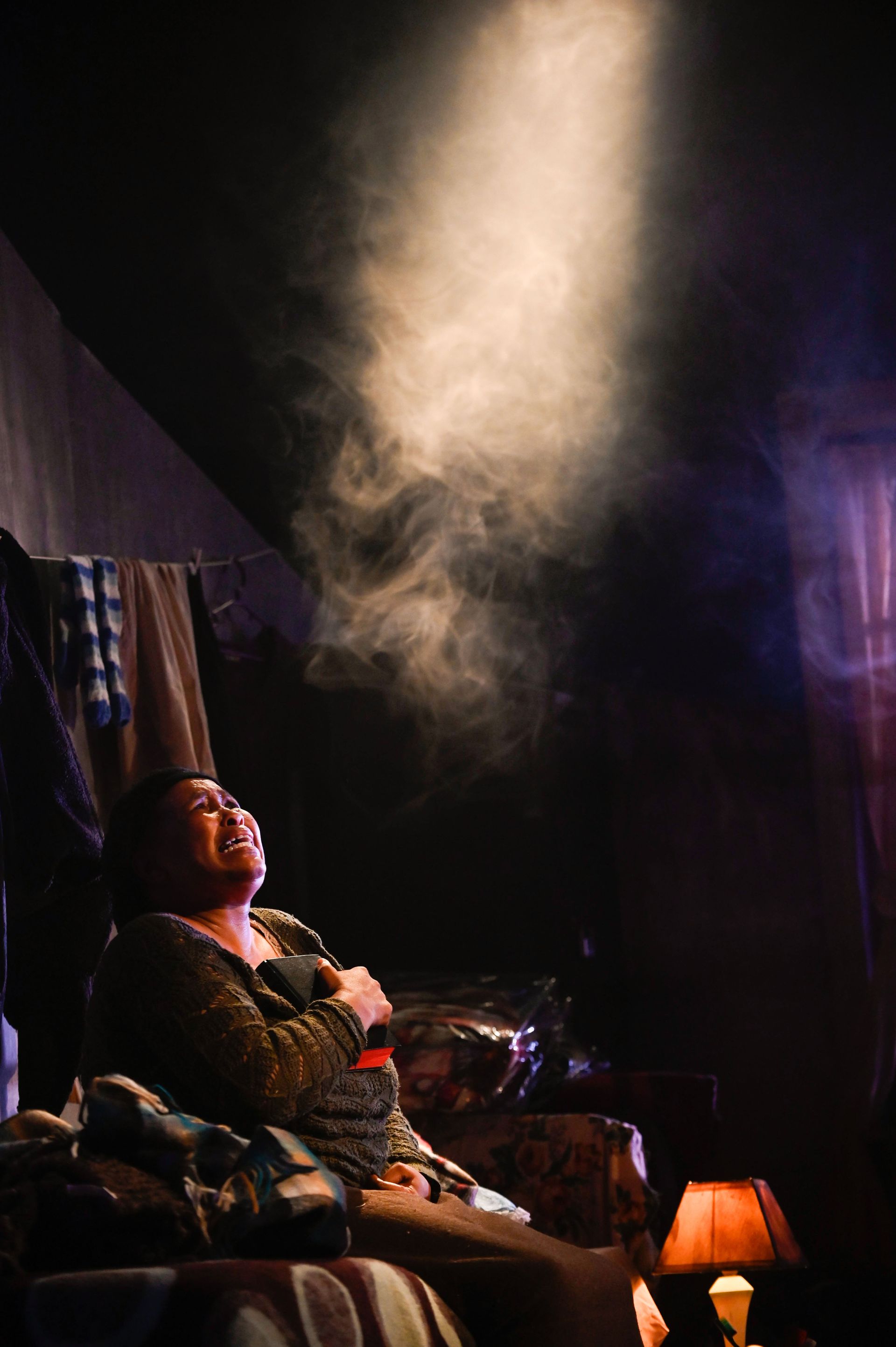
Slide title
Write your caption hereButton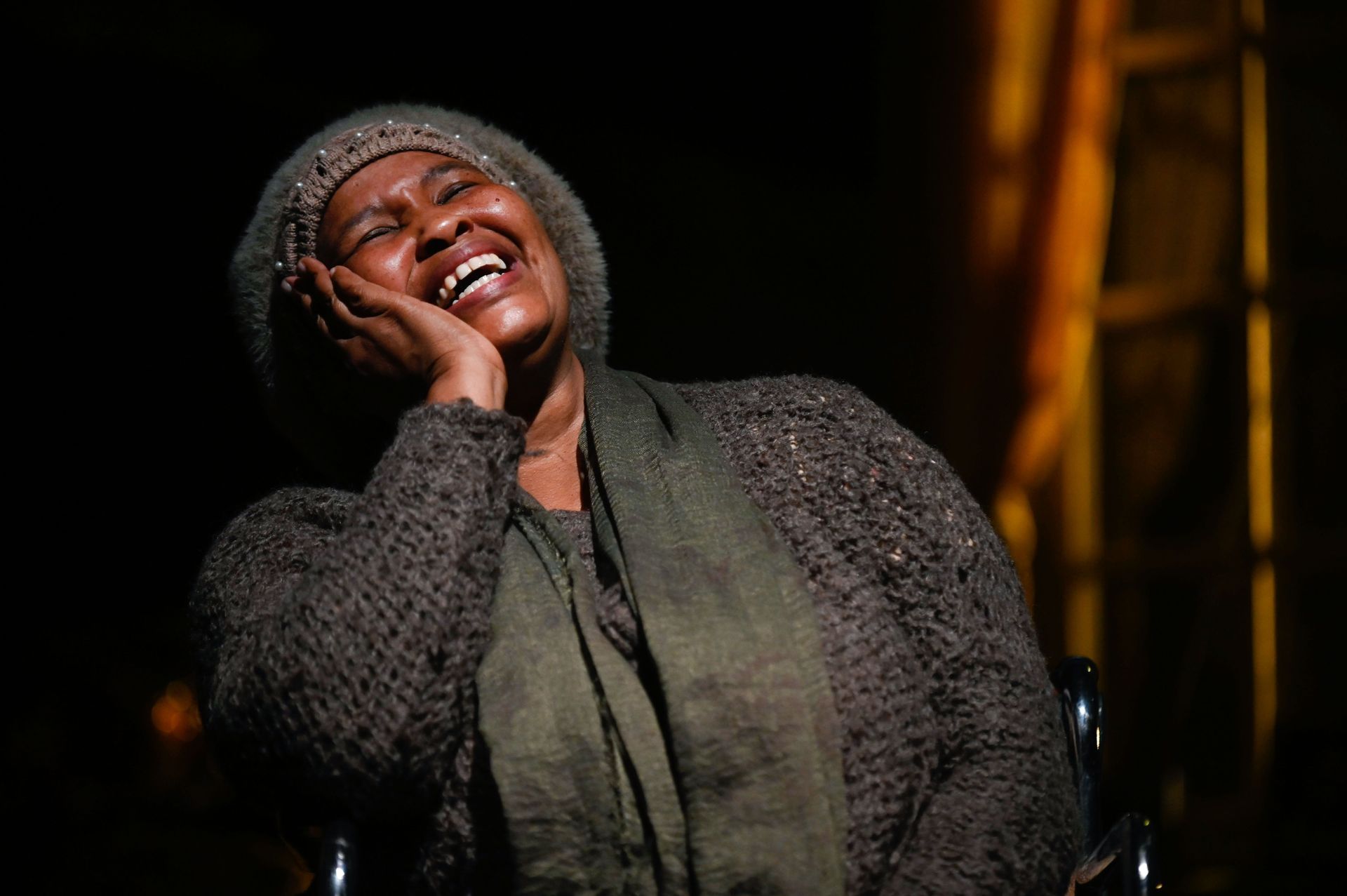
Slide title
Write your caption hereButton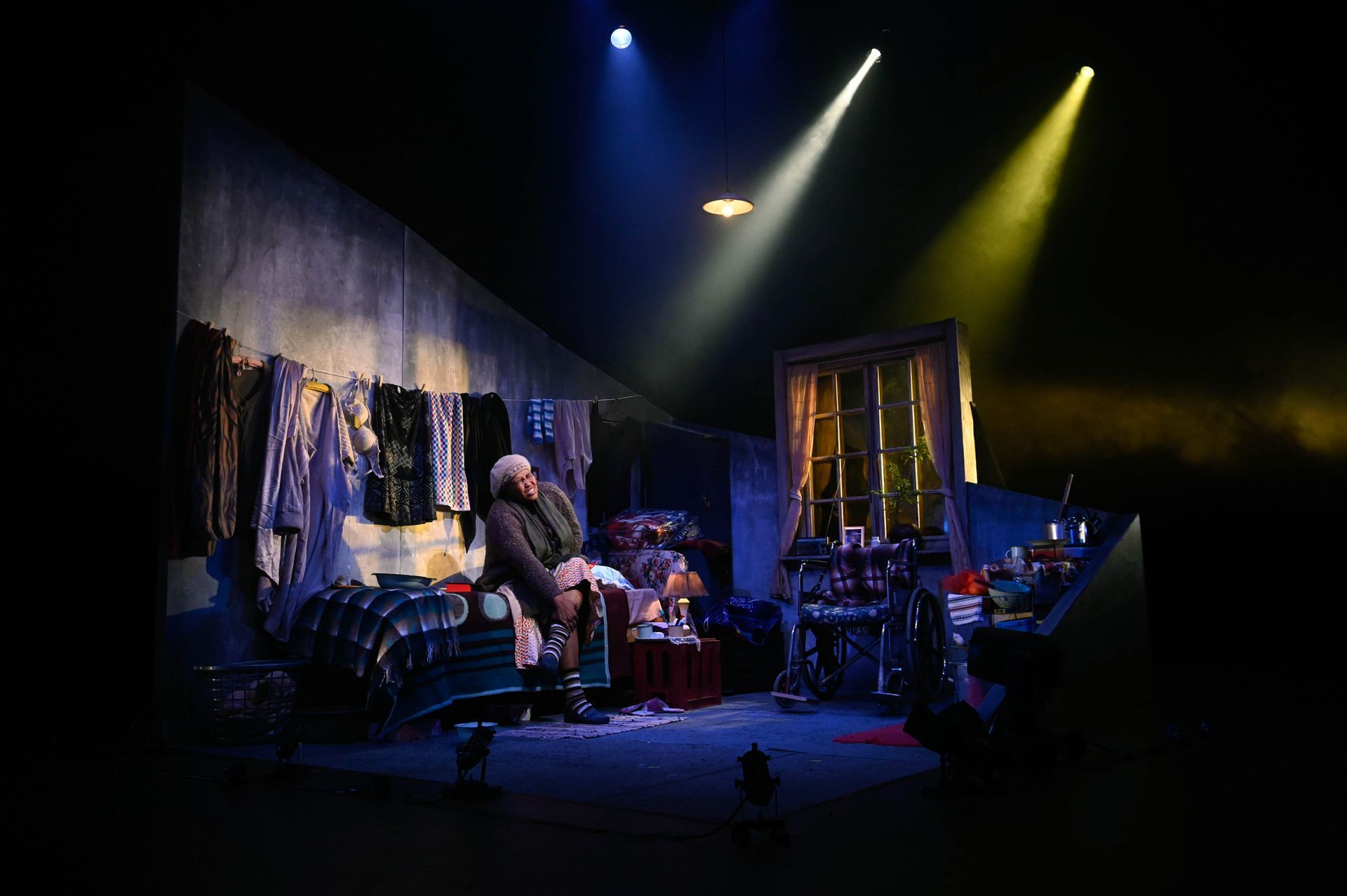
Slide title
Write your caption hereButton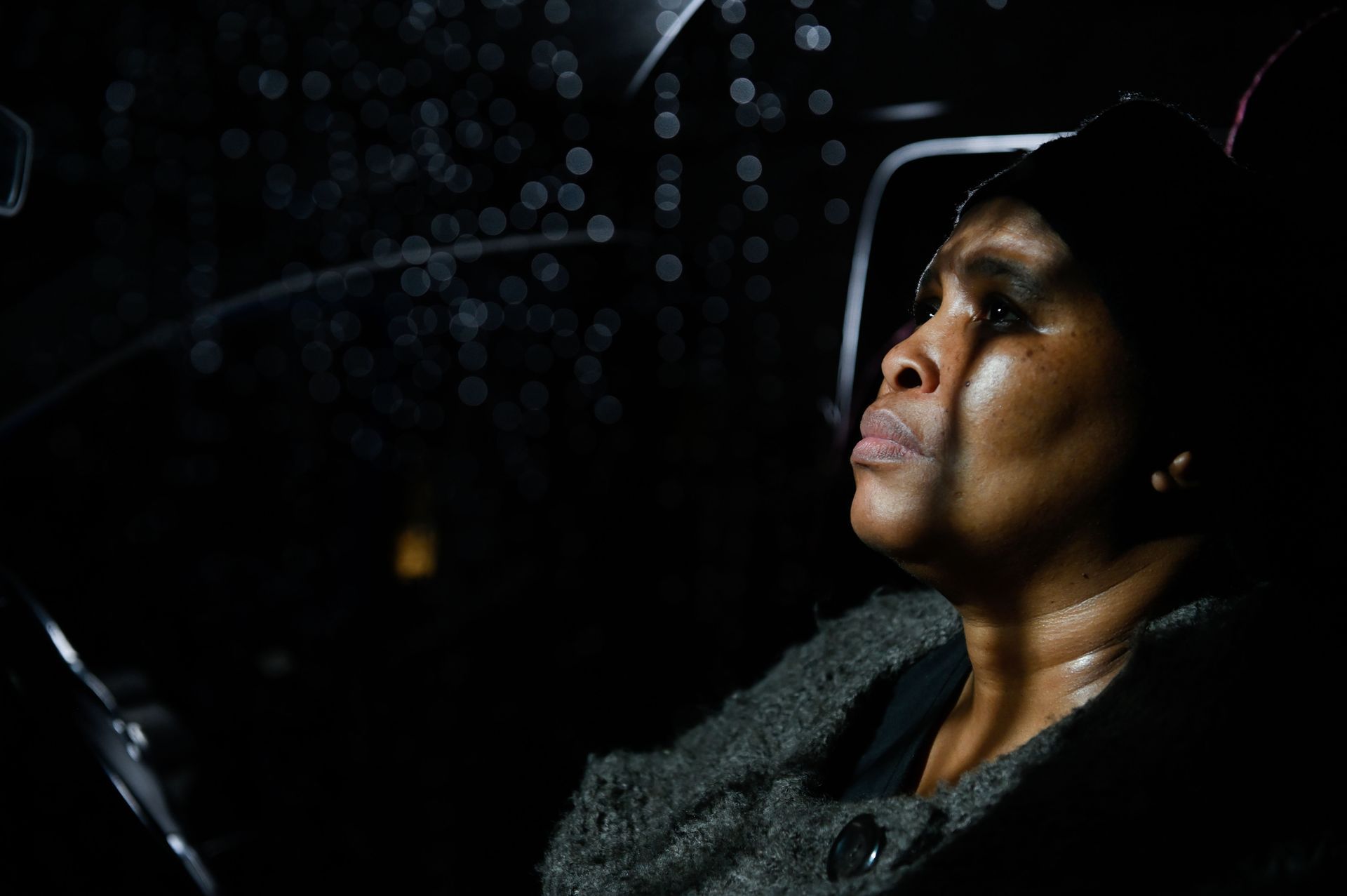
Slide title
Write your caption hereButton
Isidlamlilo/The Fire Eater
Lalela uLwandle
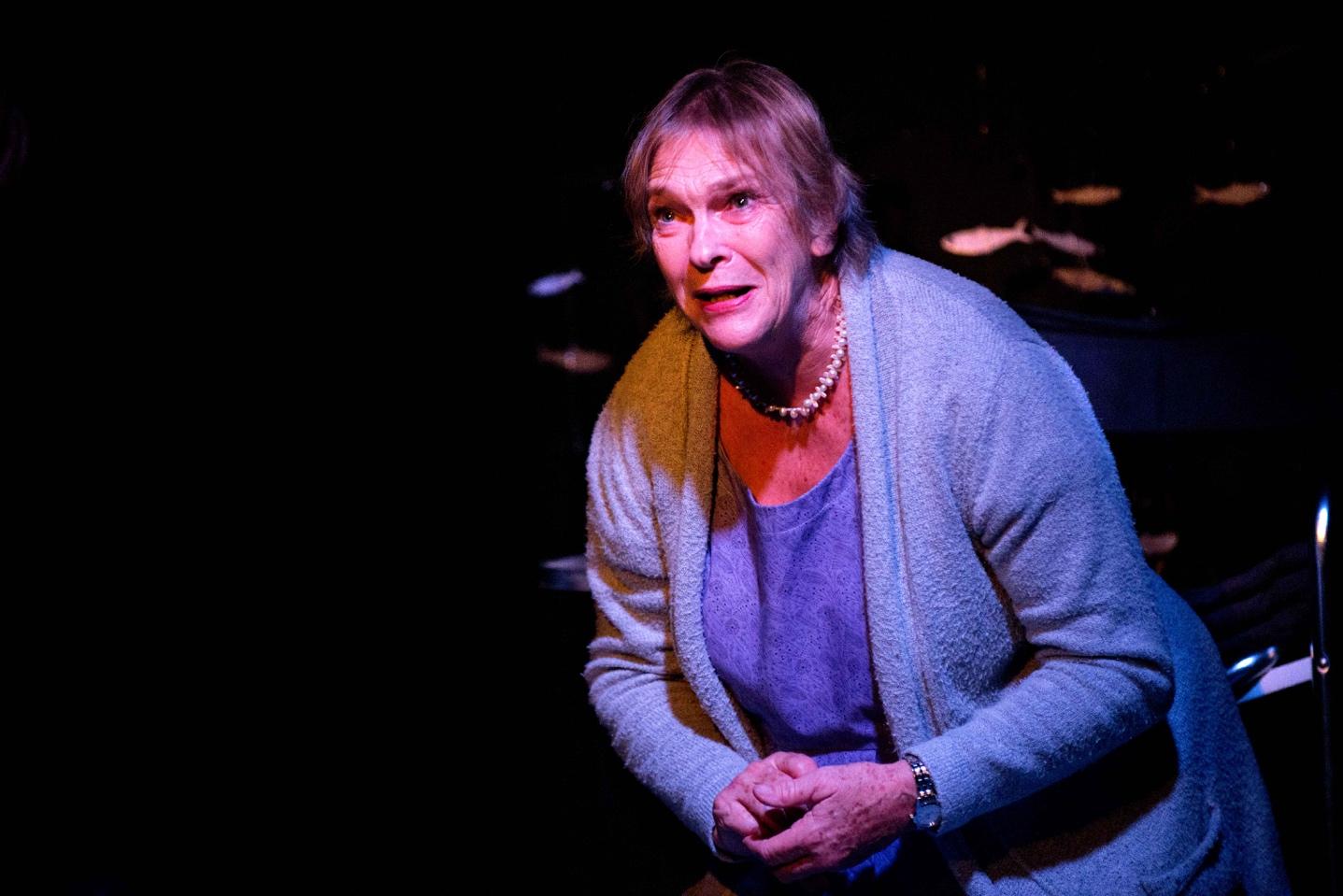
Slide title
“Our climate change science speaks unequivocally to the horrors that lie ahead…we are talking imminent collapse of whole eco- systems and yet still you people continue to prioritize these forms of extractive plunder…. acting as if there is NO real crises. As a scientist, I am here today, to tell you all, that what we are up against what constitutes a very real crisis.”
Faye (Alison Cassels) issues a stern warning in a scene from Lalela uLwandle. Pic by Val Adamson.
Button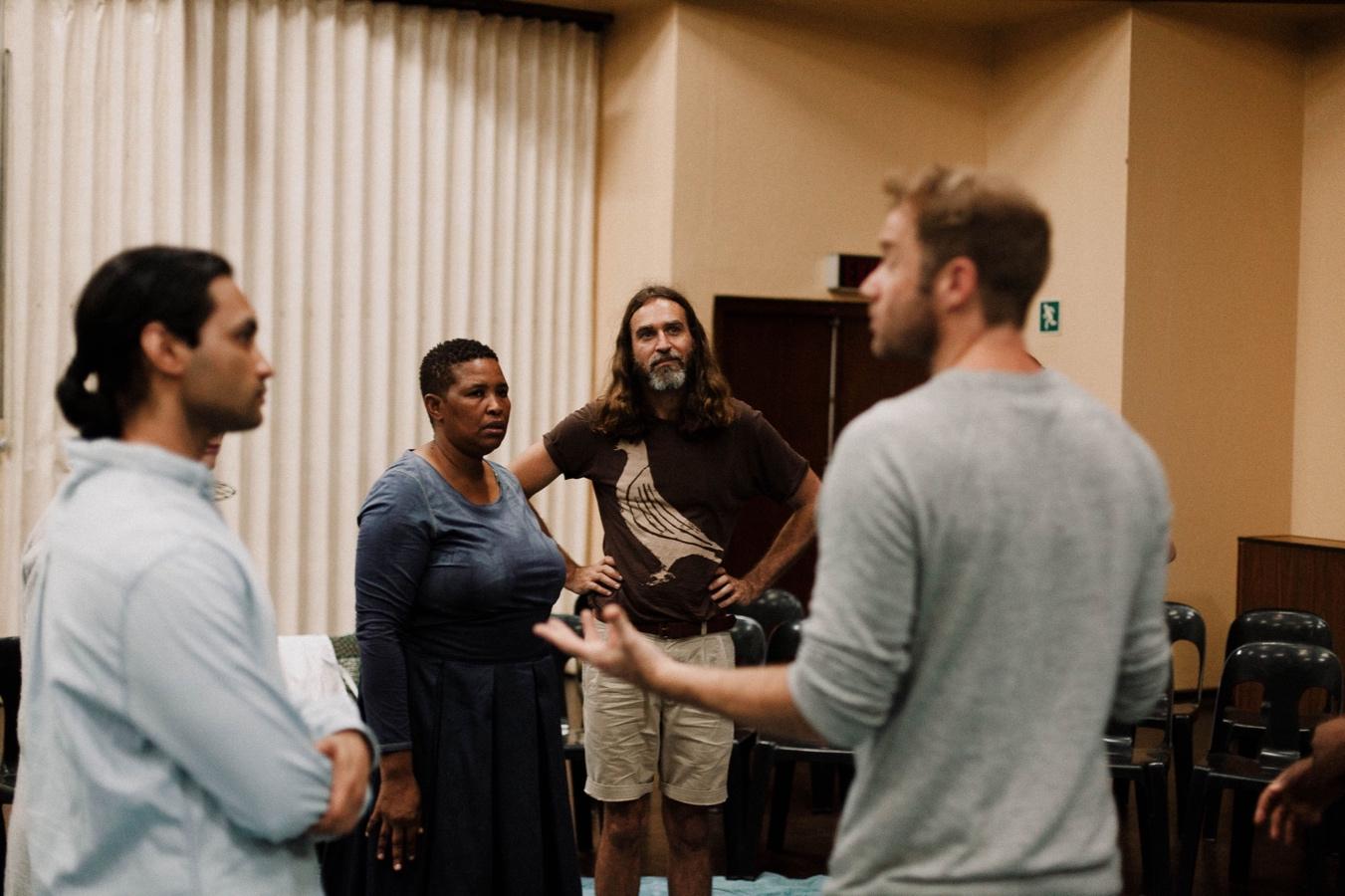
Slide title
Director Neil Coppen talks the creative team through notes before the Port Shepstone performance of Lalela
uLwandle. Pic by Kelly Daniels.
Button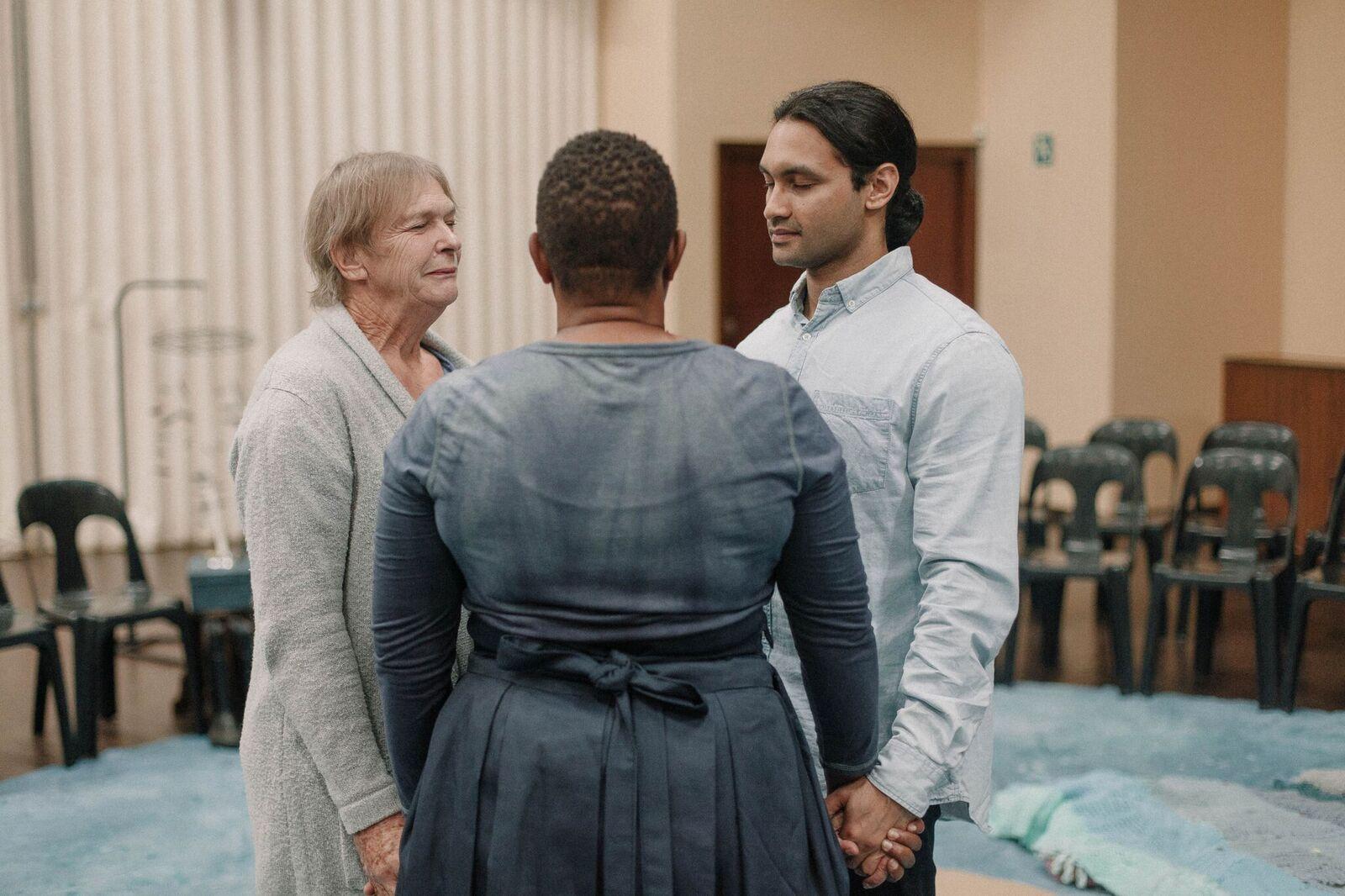
Slide title
The Lalela uLwandle actors Alison Cassels, Mpume Mthombeni and Rory Booth taking a moment together
before the first public performance of the show in Port Shepstone. Pic by Kelly Daniels.
Button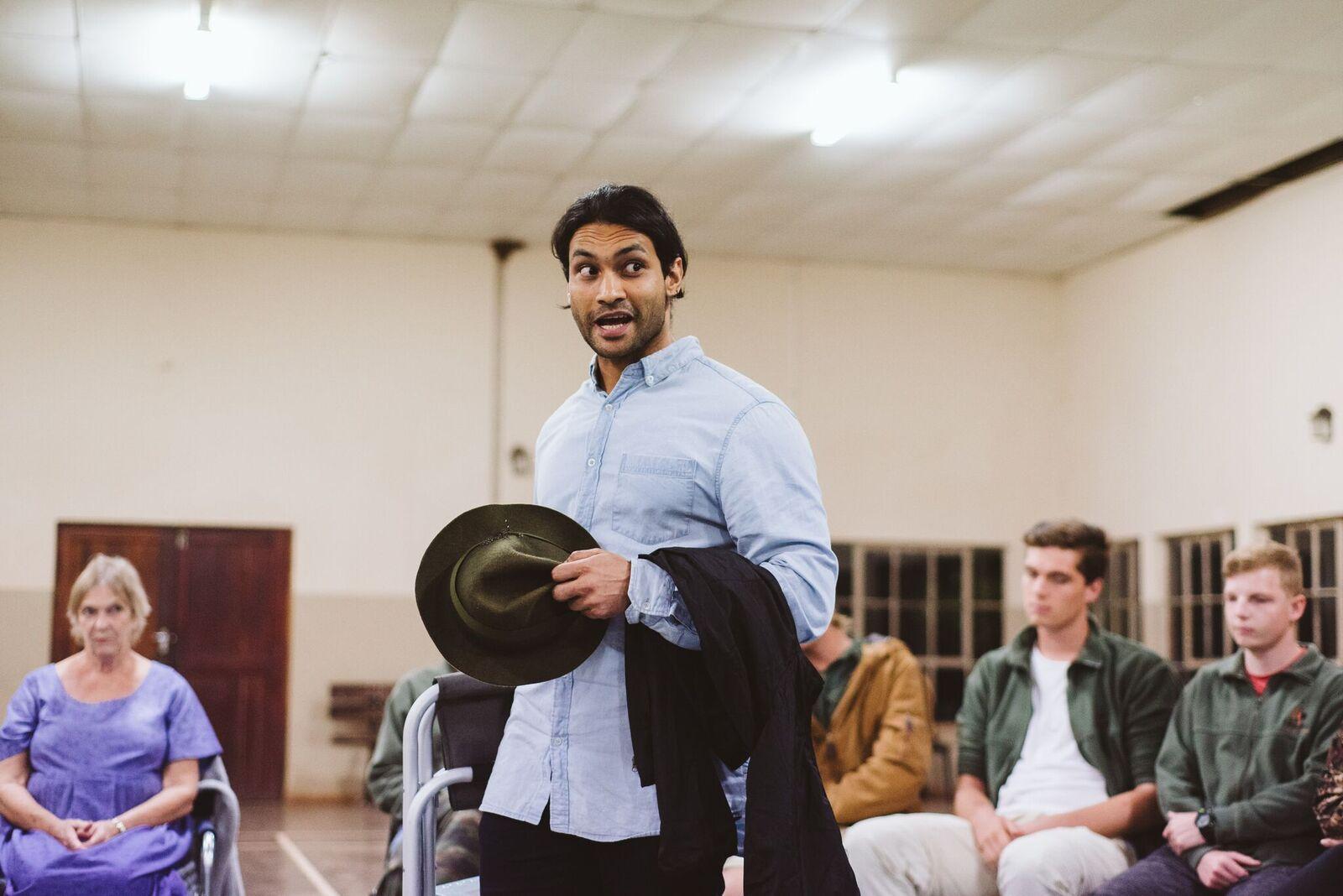
Slide title
Rory Booth plays Niren a young environmental activist and compulsive and often comic storyteller whose
family has a long history of sein-net fishing along the coast of Durban. The historical accounts told to Niren
by his father Kanna, are based on the robust and rigourous historical research undertaken by Neelan Govender and Viroshen Chetty which is published in their book: “Legends of the Tide: Seine-netters & the roots of the Durban fishing industry”.
Pic by Casey Pratt.
Button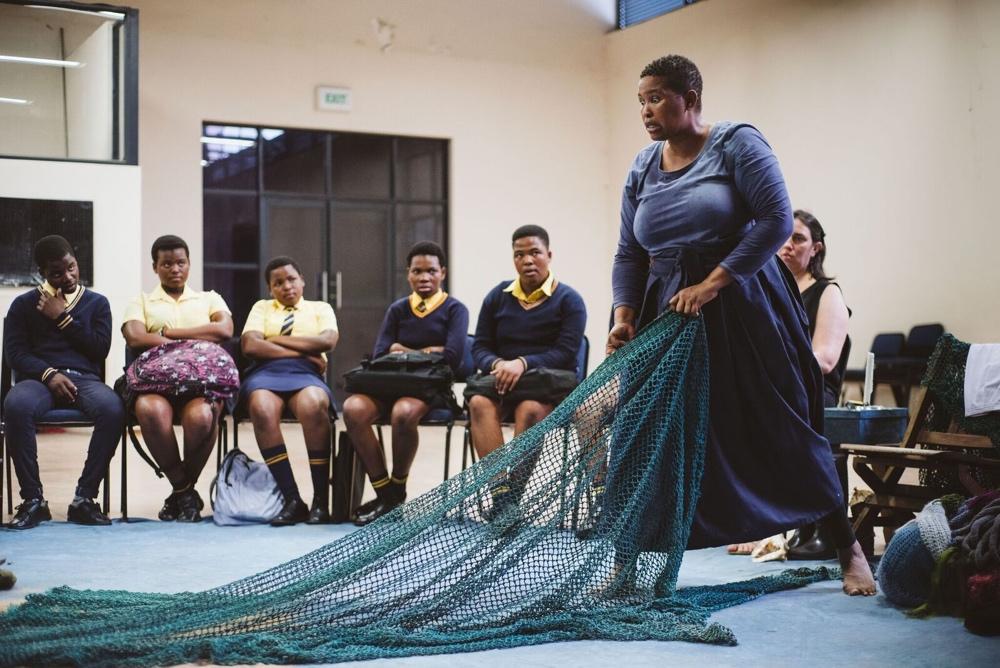
Slide title
Theatre can be an emancipatory and transformative art-form, which grants audiences the opportunity to
develop greater nuanced and empathetic understanding in spaces where conflict and injustice prevail.
Performance of Lalela Ulwandle at Sodwana bay. Pic by Casey Pratt.
Button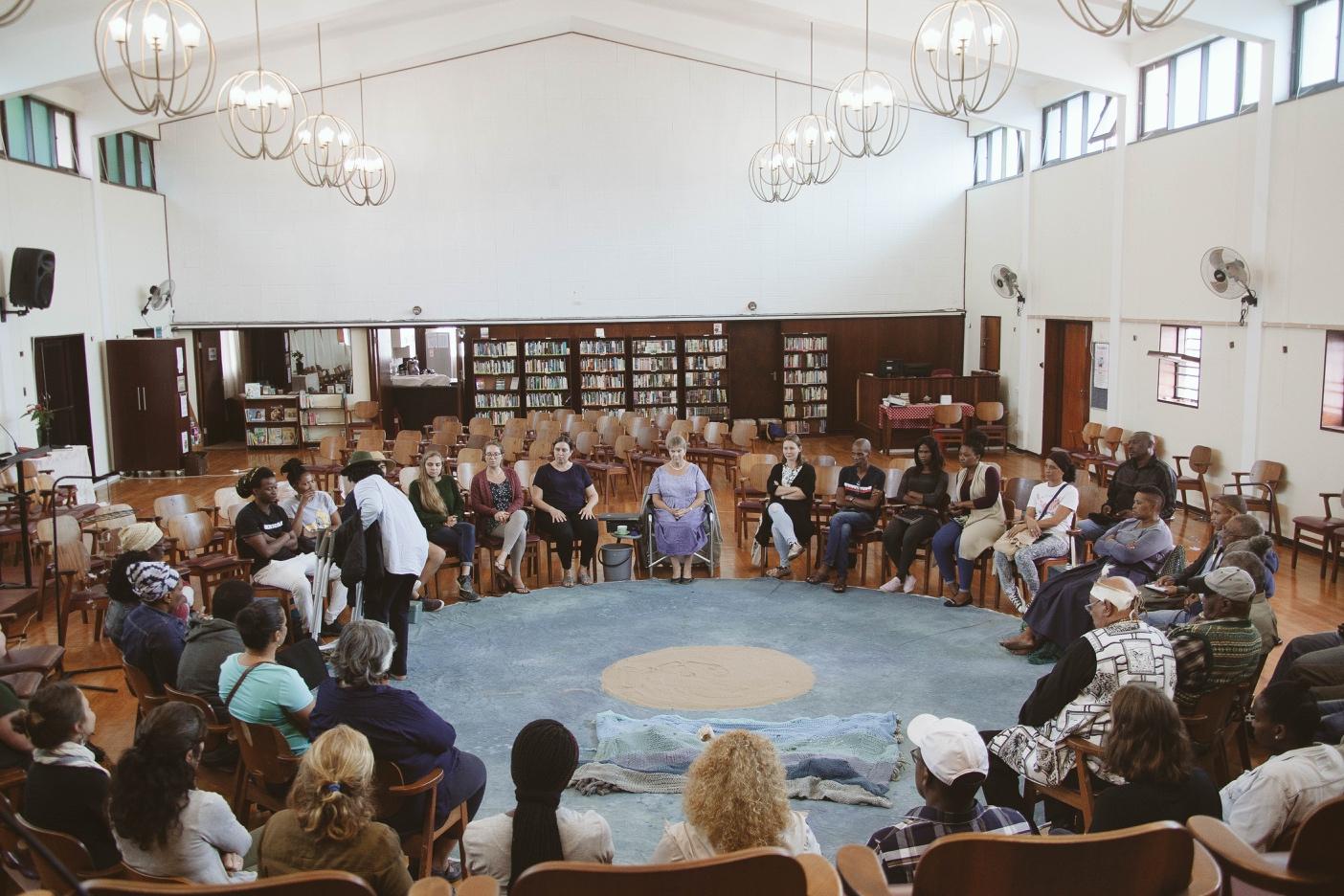
Slide title
The amphitheater of empathy is set for a performance of Lalela uLwandle during the Port Elizabeth tour 2020. Pic by Kelly Daniels.
Button
-
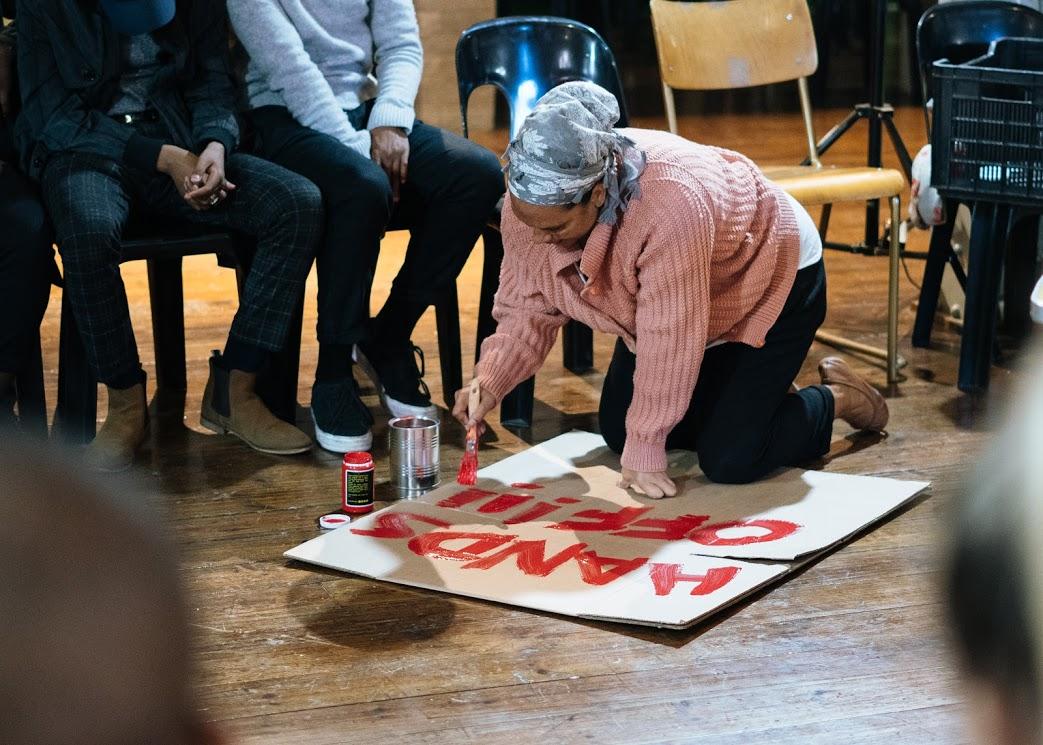
Slide title
Quanita Adams as Aunty Sumaya as she returns to her activist roots in a scene from Boxes performed at the District Six Homecoming center 2019. At the conclusion of this scene, we witness Aunty Sumuya rediscovering the importance of her voice, dismantling one of her cardboard packing boxes and transforming it into a canvas to paint a protest sign on the back that reads: “HANDS OFF!”. Pics by Retha Fergurson.
Button 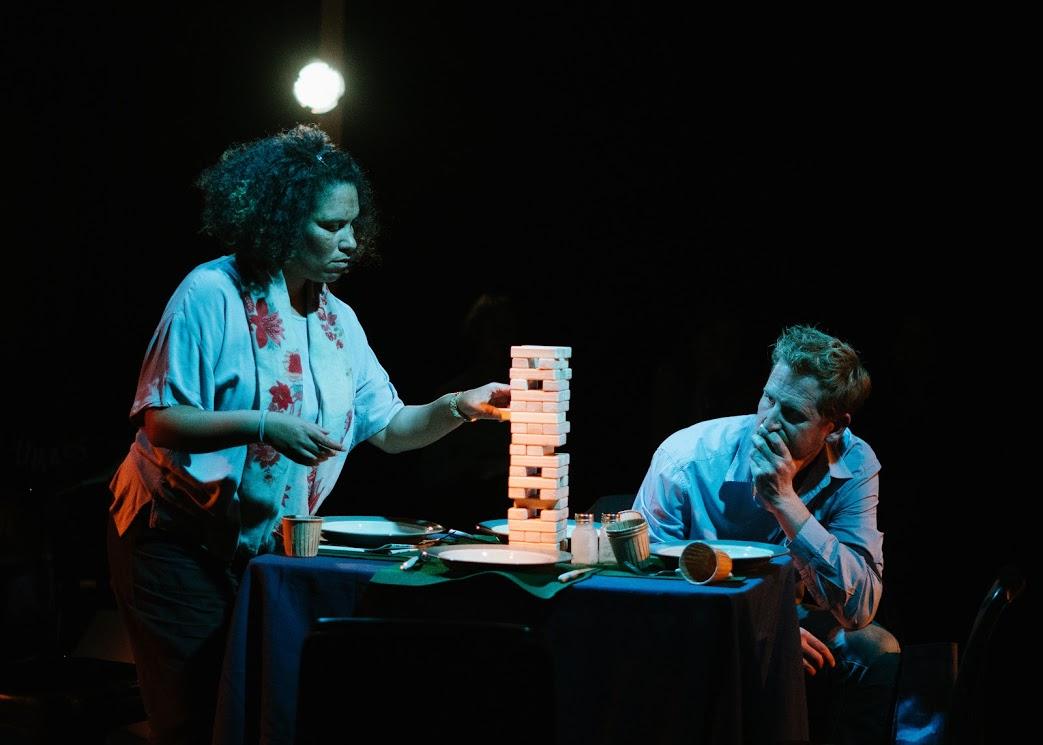
Slide title
The game of Jenga, requires players moving blocks from out of the structure and securing them on the top. Gradually the tower of blocks grows higher yet as it does, the foundations of the structure begin to weaken. It was a metaphor that spoke simply yet powerfully to both our research and final narrative. Pic Retha Ferguson.
Button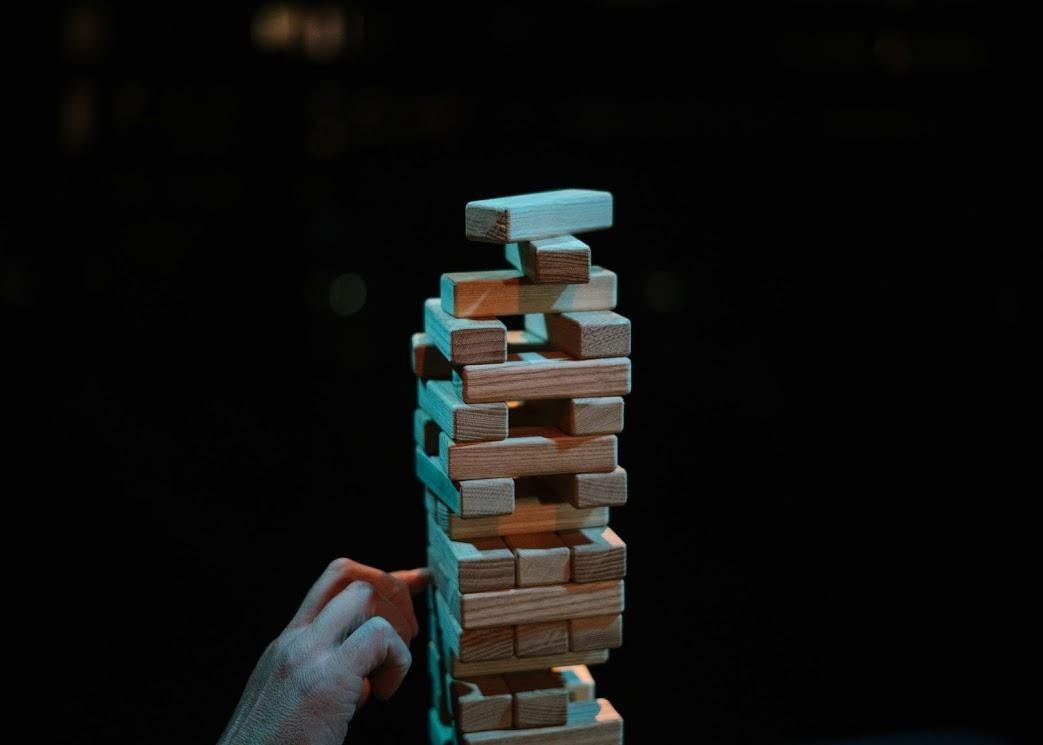
Slide title
The Jenga game would be played from the start of the play and then feature as an interstitial between the various scenes, with the actors circling the tower and removing a new piece each time. It was a tension felt by both actors and spectators, never quite knowing when the tower would topple. This meant the actors would work with a constant alertness and with the knowledge that improvisation might be required at any moment. Pic by Retha Ferguson.
Button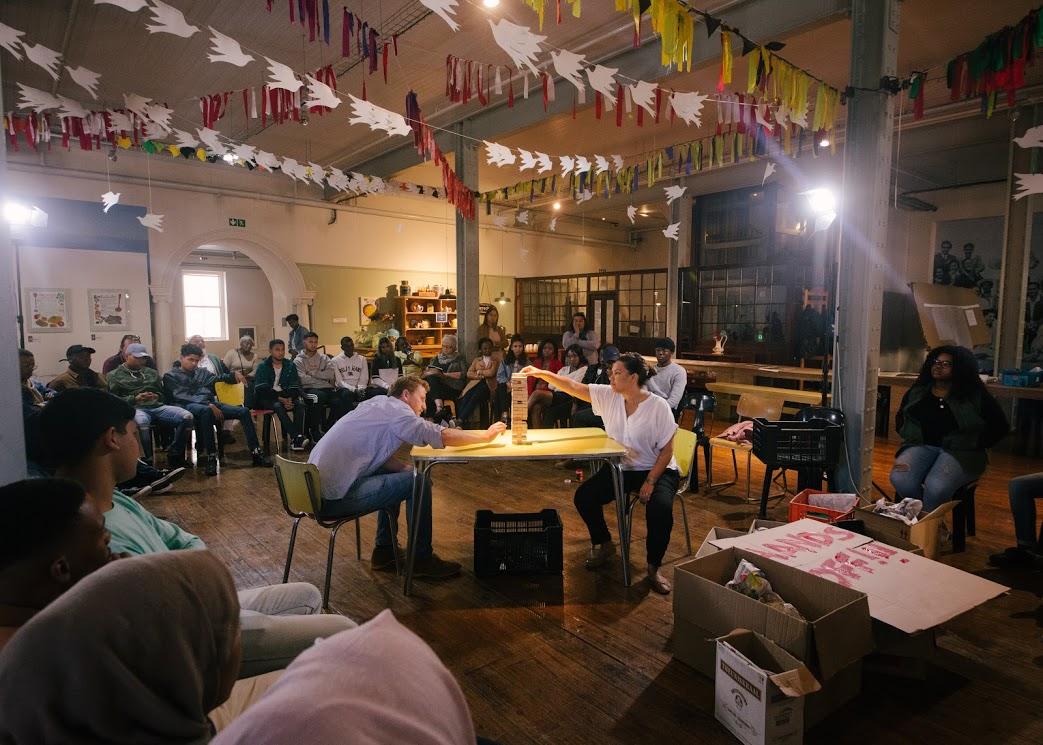
Slide title
Audience seated in a circle around the action at District Six Homecoming centre performance of Boxes. Pic by Retha Ferguson
Button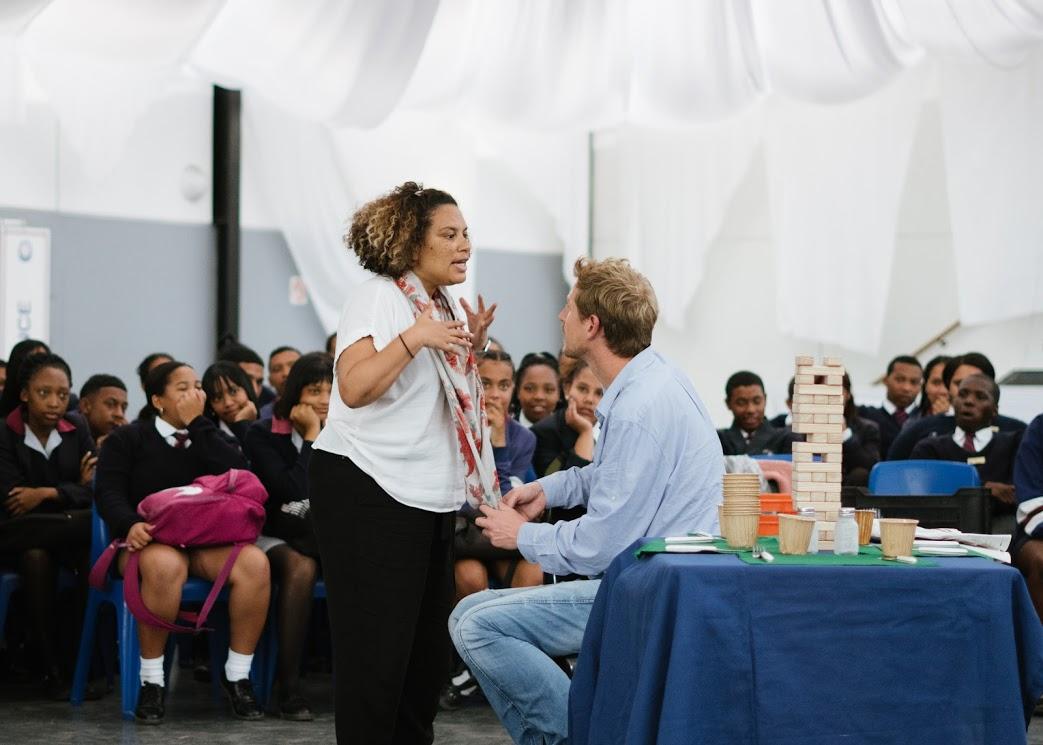
Slide title
Boxes Performance at Groenvlei High School. Pic by Retha Ferguson
Button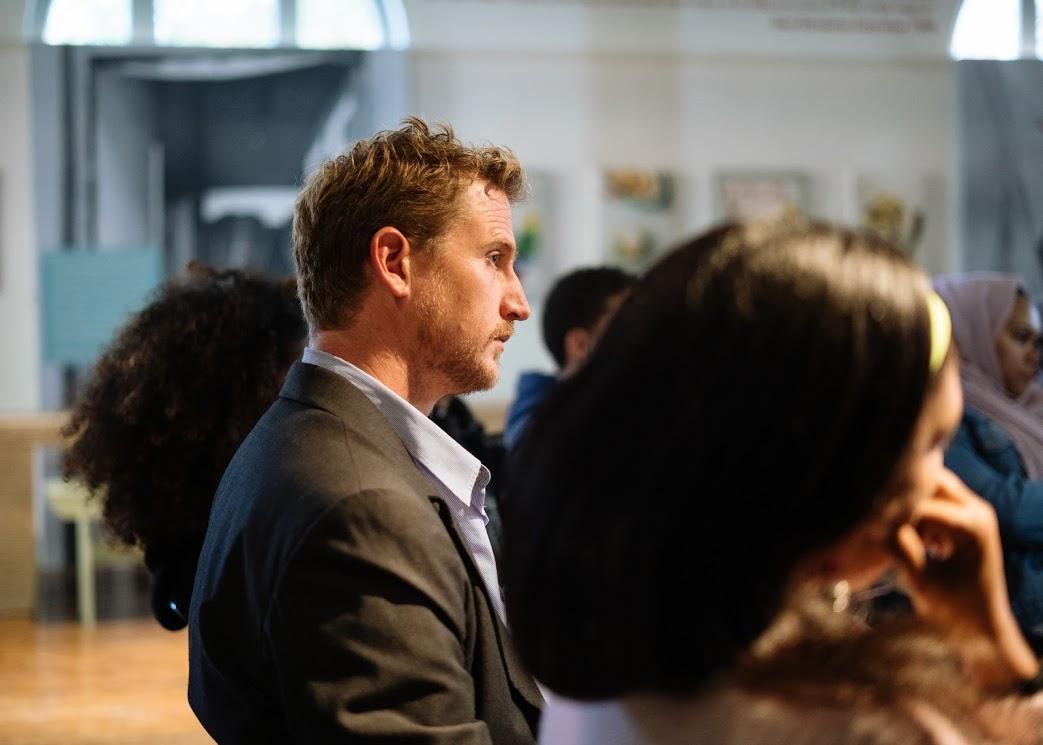
Slide title
Actor Mark Elderkin at District Six homecoming center. Pic Retha Furgerson
Button
Boxes
The Last Country
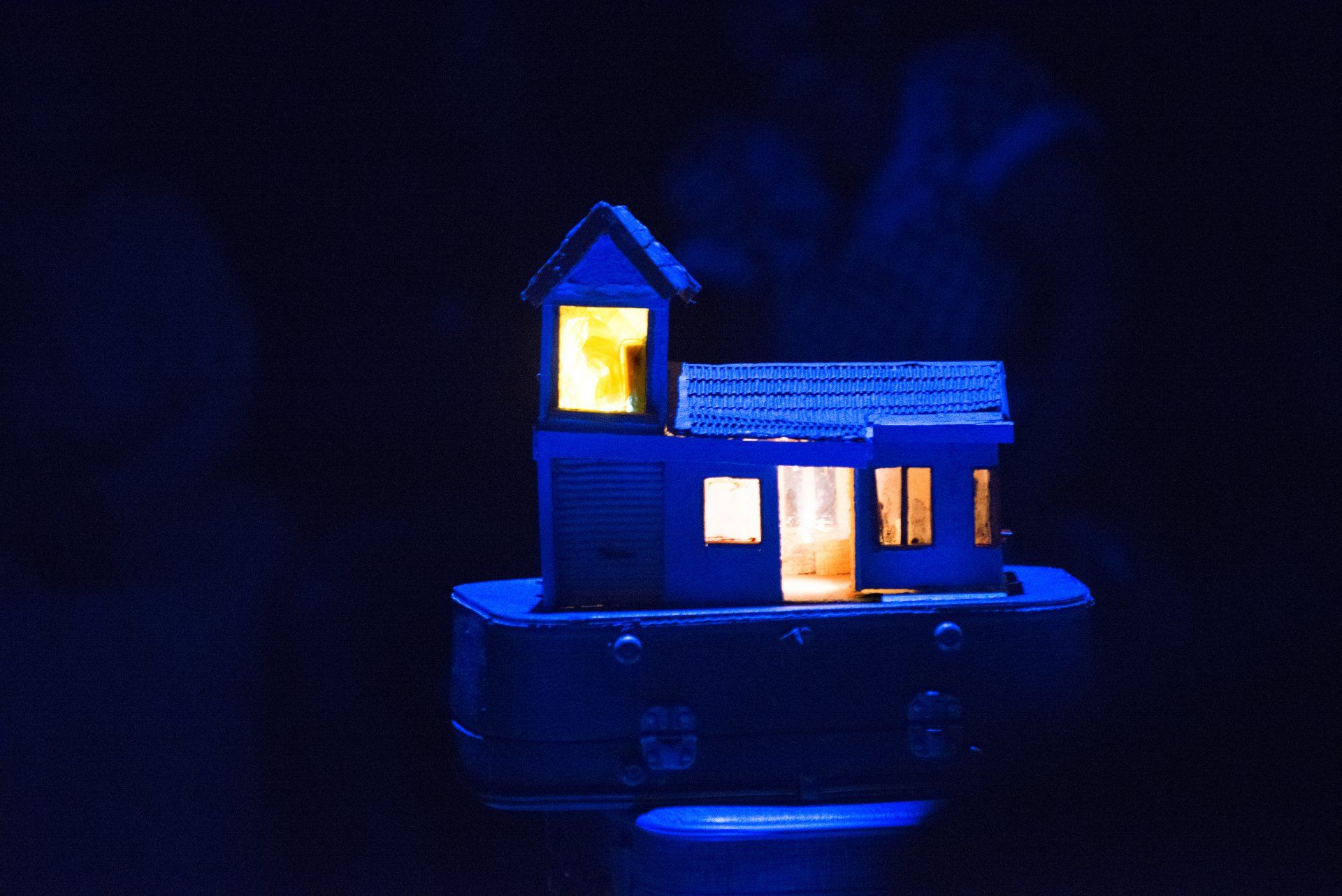
Slide title
The Last Country explores the stories of four women migrants. Throughout the production the audience intimately listens to experiences of leaving home and arriving in Durban, where the women find various strategies in which to remake a sense of belonging and create a place something like home. In distilling the 30 oral histories into an hour long narrative, the Empatheatre writing team focused their central-image around MaThwala’s dream home in Ndwedwe, a structure she has devoted her entire adult life to saving enough money to return and retire to. Pic by Val Adamson.
Button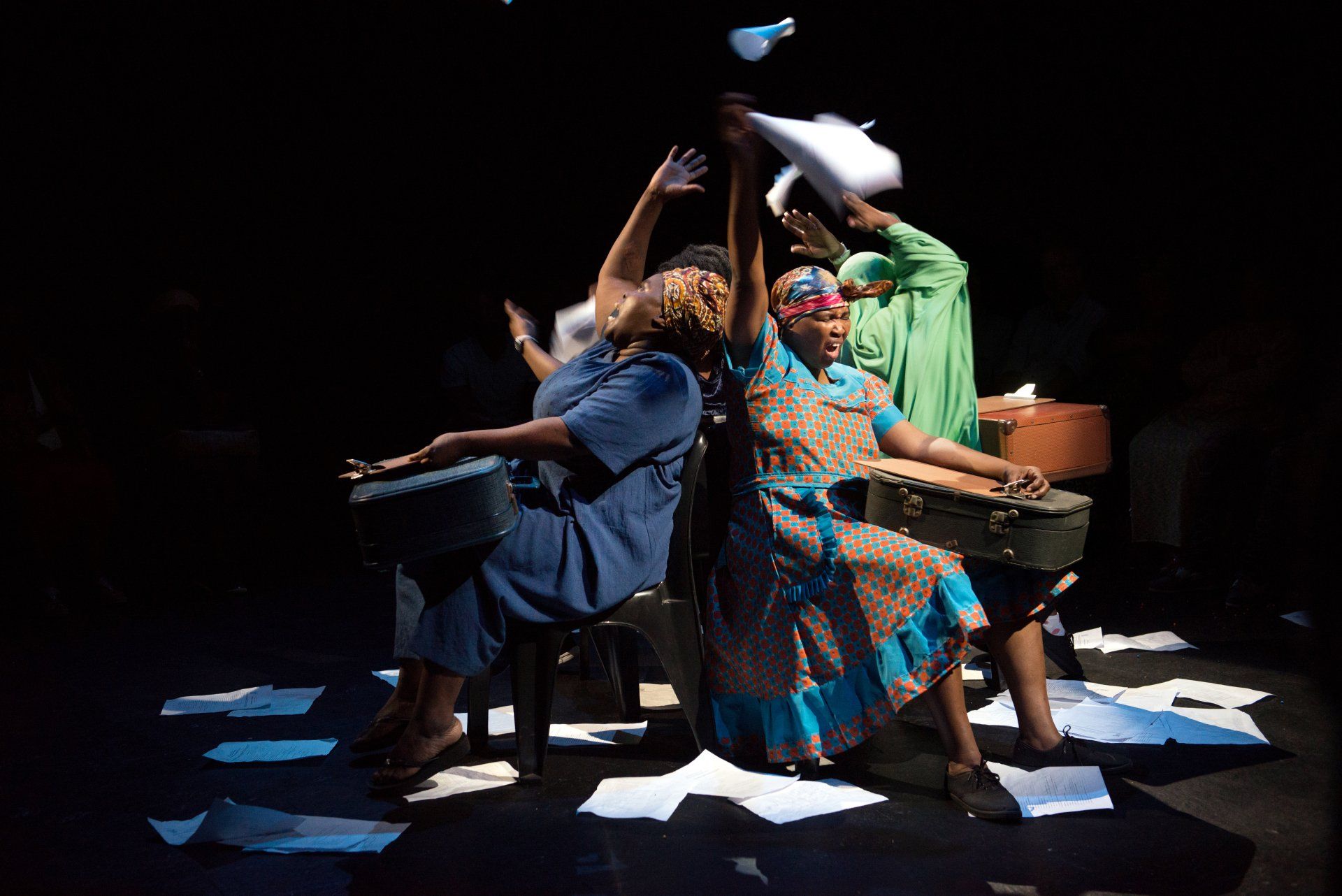
Slide title
The Last Country theatre performances were far more successful catalysts for creating spaces of empathetic listening, as opposed to more formal research presentations like seminars and reports. Storytelling is a powerful way to make real the endeavour of collective humanity, as opposed to simply telling someone to be compliant to a checklist of human rights indicators. Pic by Val Adamson.
Button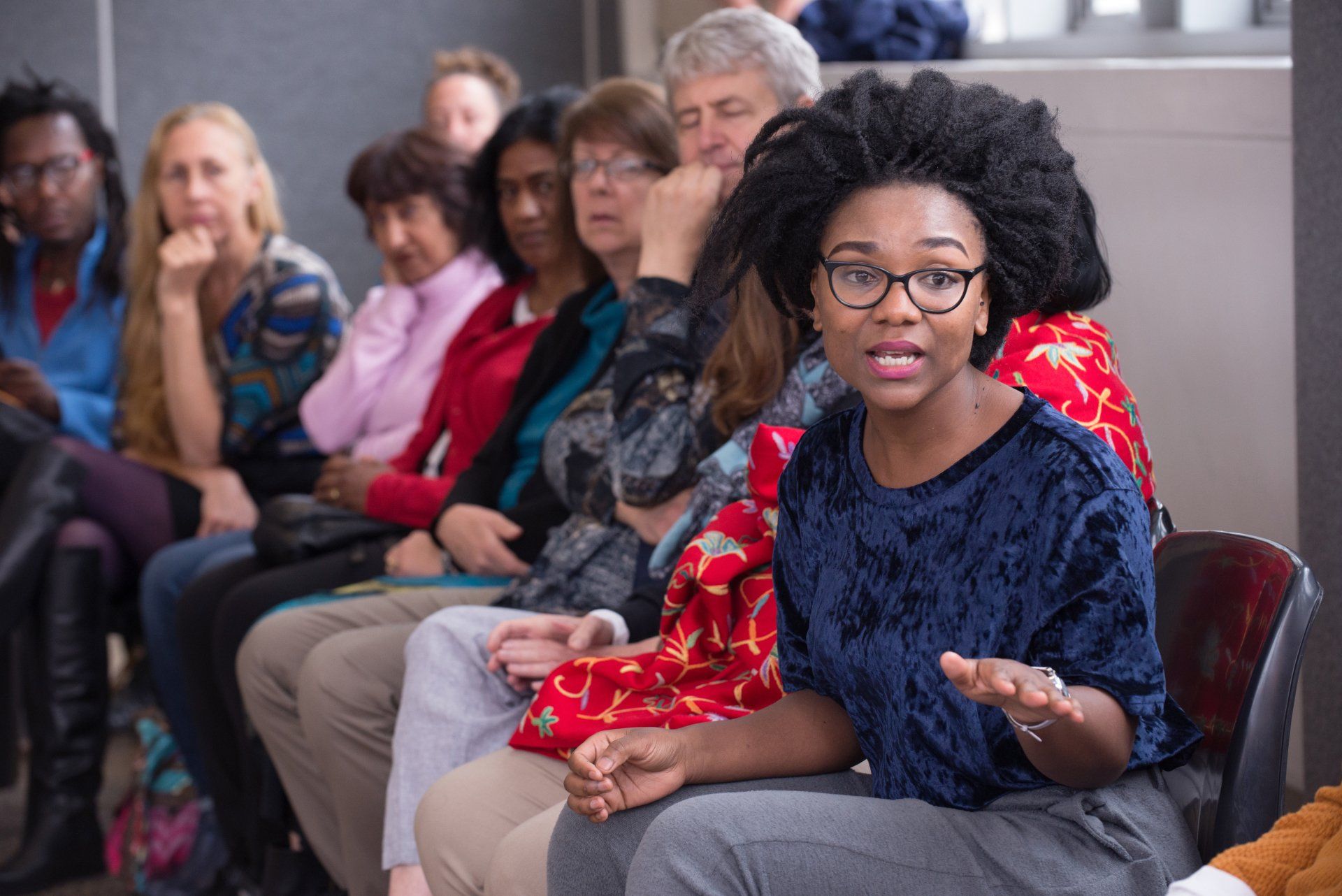
Slide title
The Last Country offers an intimate theatre experience which seats actors and audience together in a large circle. Here Zintle Bobi, playing Aneni, tells her story while the audience listen on at performance at the Denis Hurley Centre. Pic by Val Adamson.
Button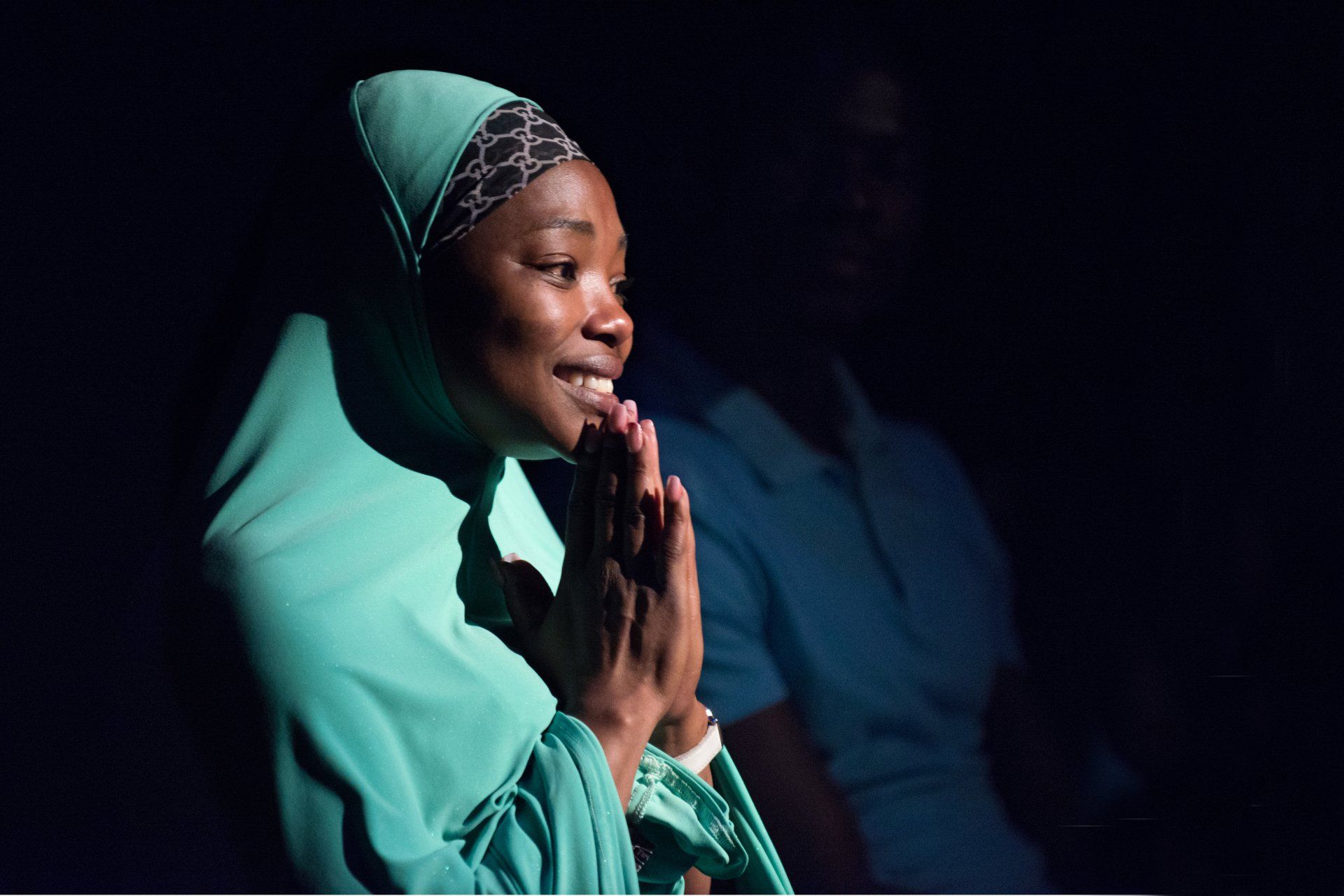
Slide title
Actress Nompilo Maphumulo as Somali refugee Aamiina. In the closing scene of the play, Aamiina comments: “Since I arrived here, the situation at home has not changed. You come across images in the newspapers and you ask yourself, is that the life you wish to return to? You think that I am lucky to be here. No matter how hard it is here in Durban, things are still worse in Somalia. The suffering might be similar but here the risk is still less.” Pic by Val Adamson.
Button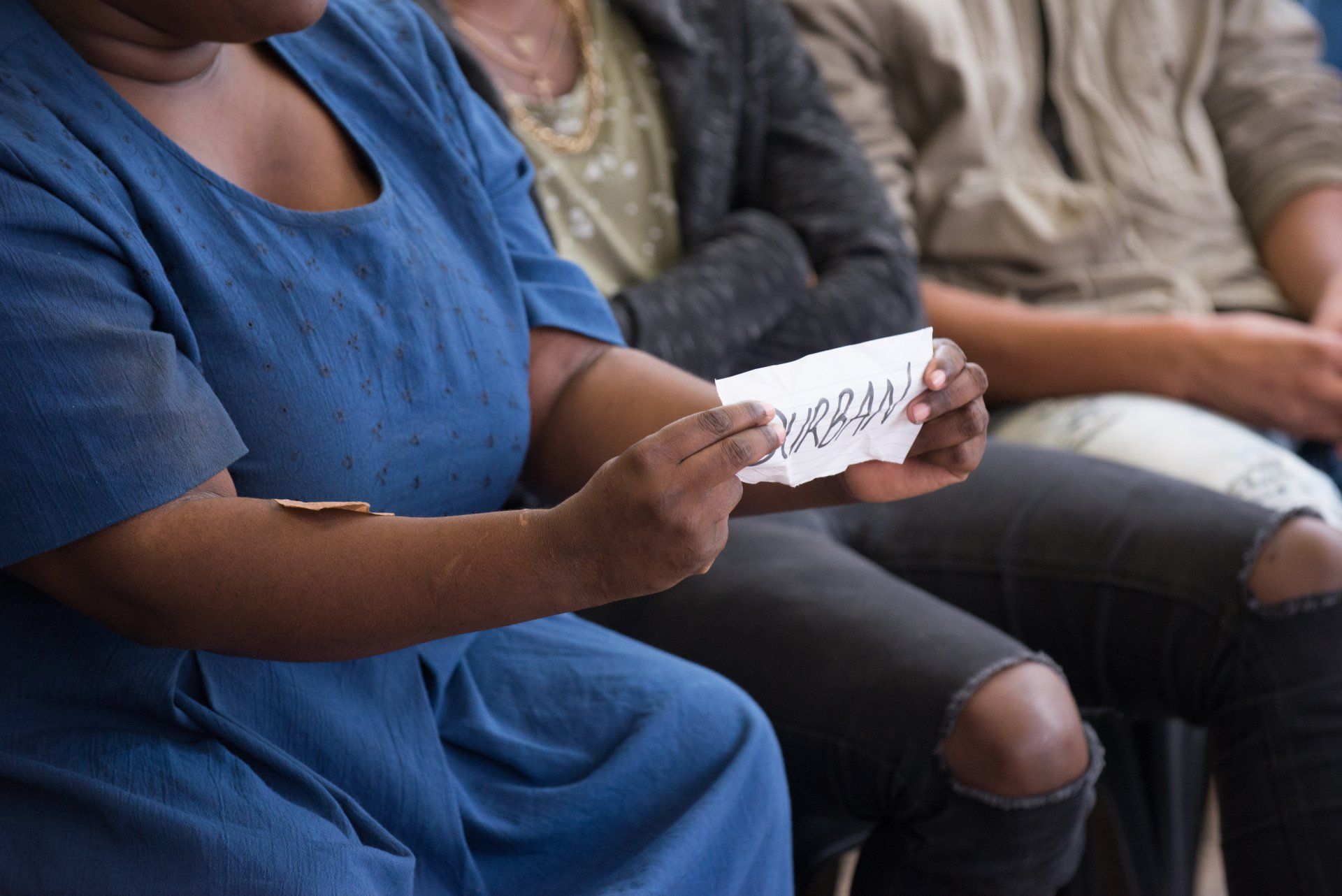
Slide title
Ofrah (played by Philisiwe Twijnstra) recalls: “On arriving in South Africa, the locals took me to go to the place where they pray and at that church they asked me “Where was I going?”. I pointed to the name of a city, my neighbor in the Congo had written down on a piece of paper for me. “Durban?” they said. I nodded.” Pic by Val Adamson.
Button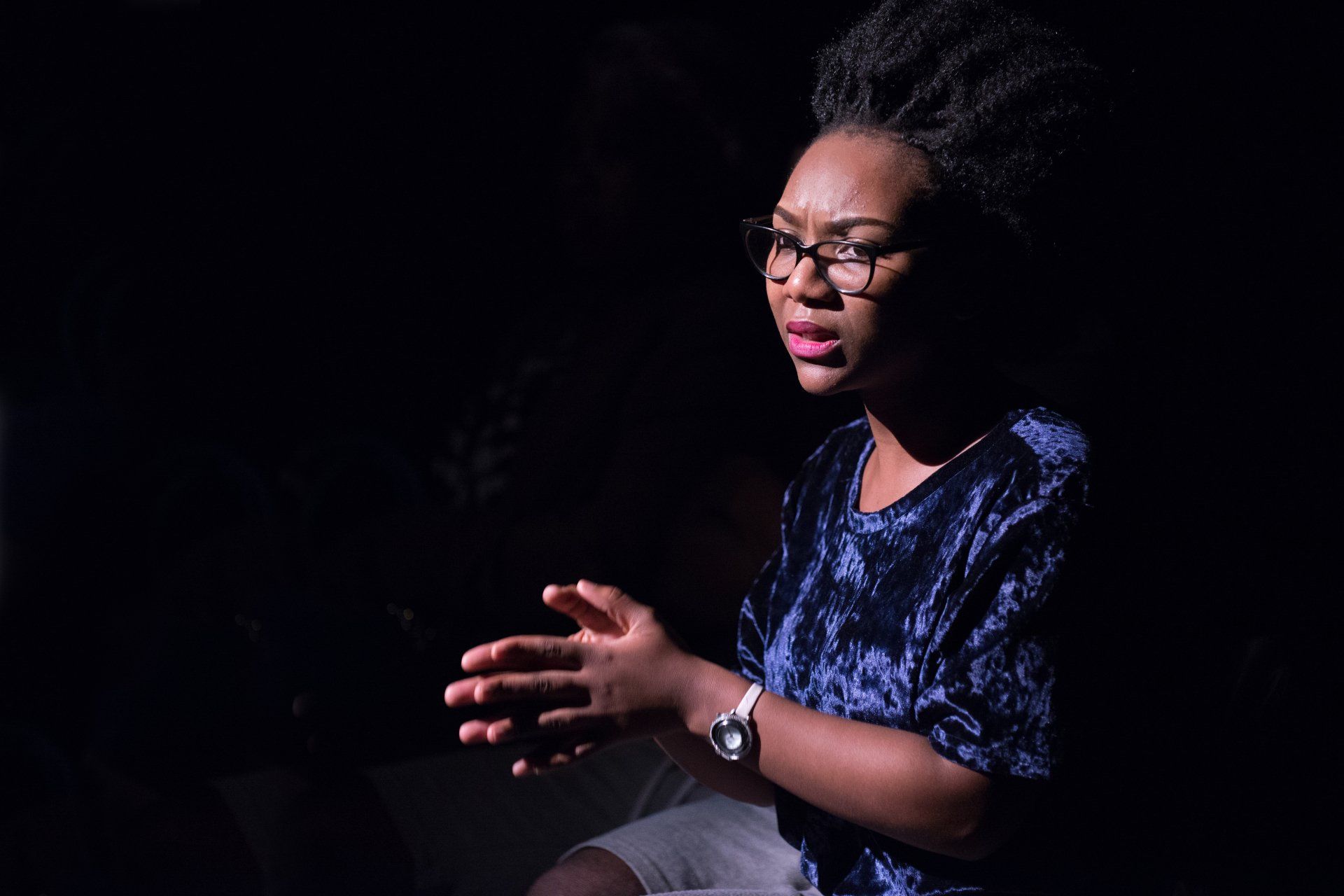
Slide title
Zintle Bobi plays Aneni a young woman who leaves her husband in Zimbabwe and travels to South Africa with the hopes to complete a PHD at a South African University. Pic by Val Adamson.
Button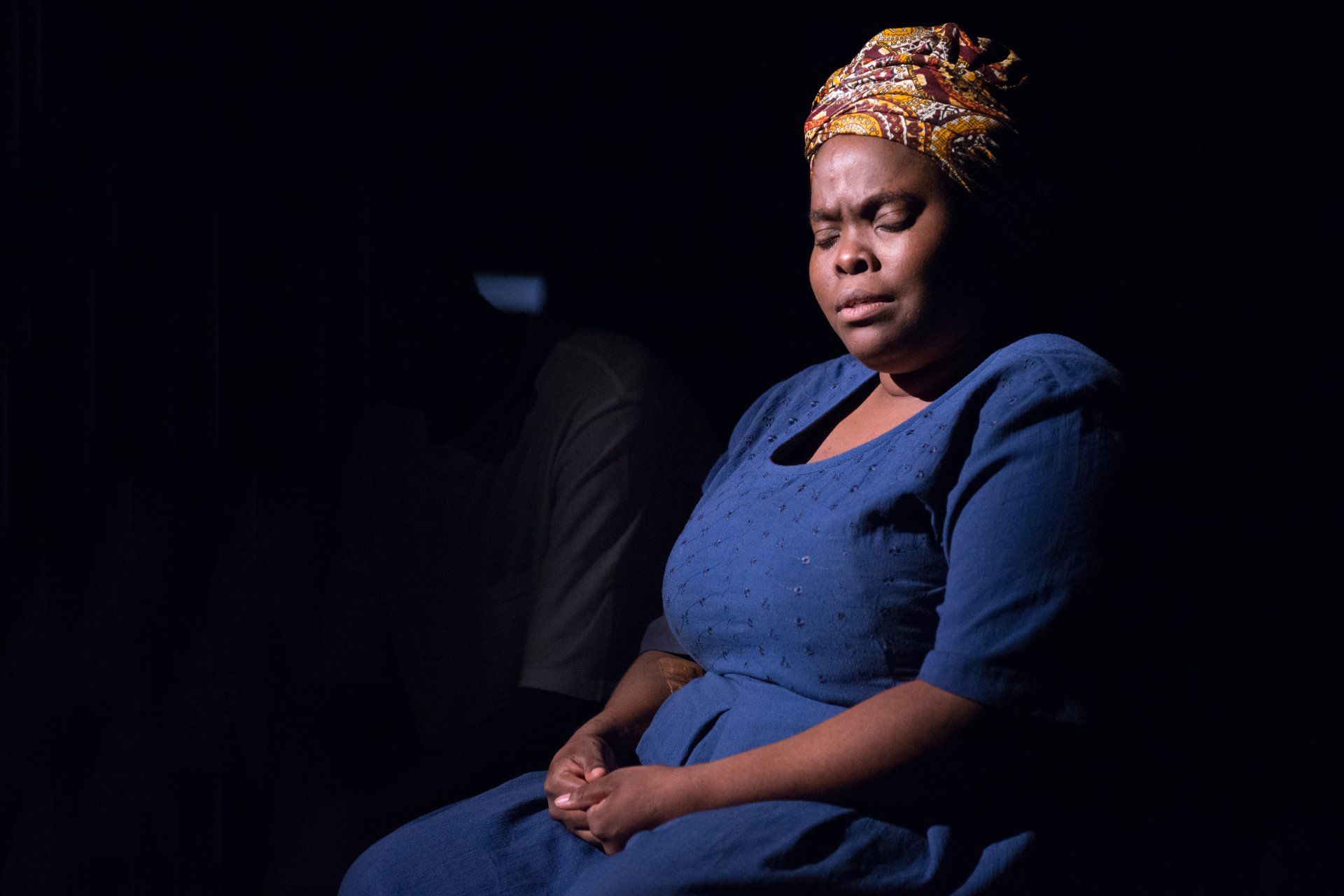
Slide title
Philisiwe Twijnstra plays Congolese refugee Ofrah, a woman who, despite the extraordinary hardships she has endured, clings to her faith and sense of humor. “There are days” Ofrah tells the audience in the closing scene of the play, “where I stand alone at the beach-front, on the shore with the waves rushing over my feet. I pray…I pray till I have run out of words to pray with. I say ‘Father, you sent us here. Show us all mercy, part the waves of the sea for us… guide us now to your promised land.” Pic by Val Adamson.
Button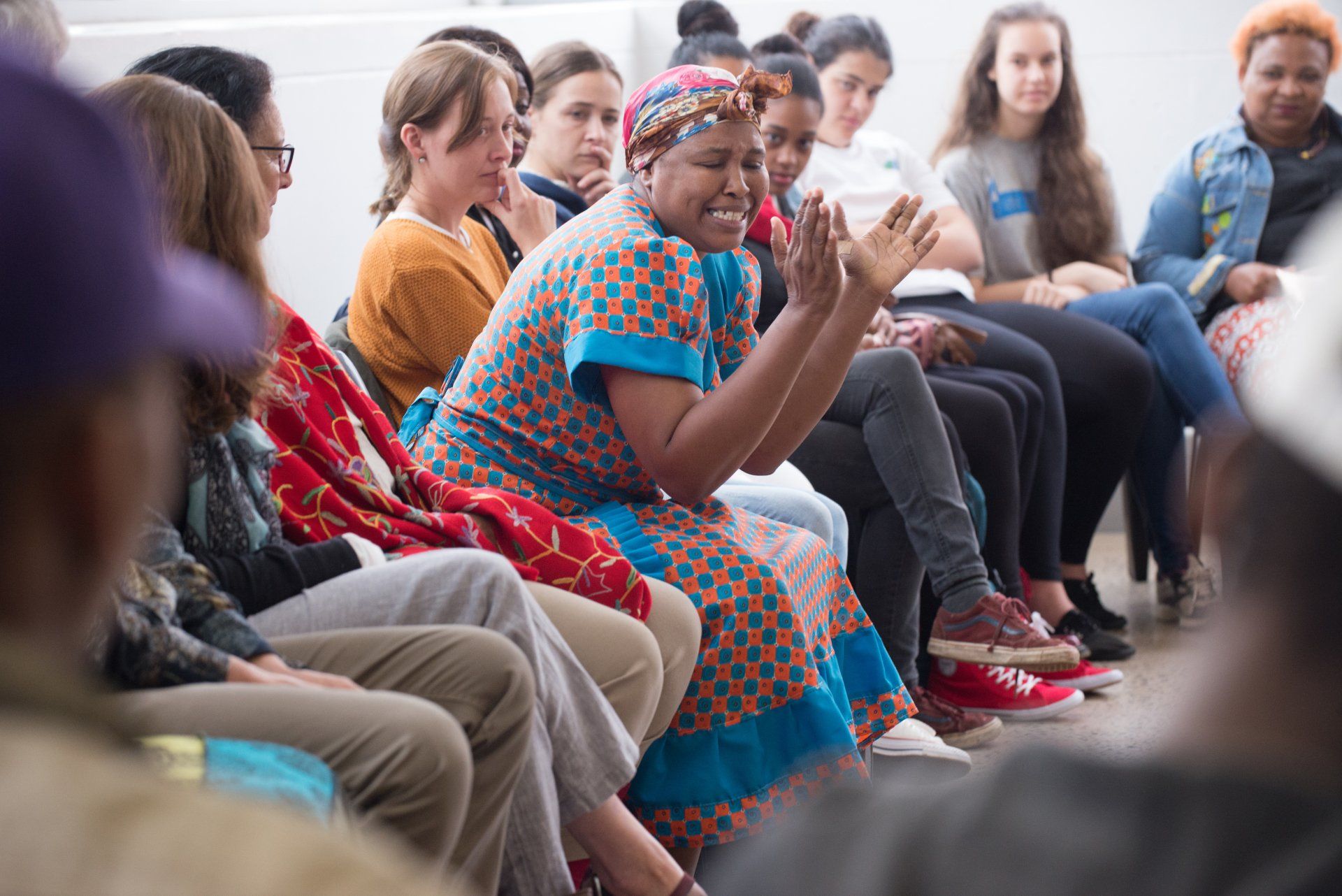
Slide title
Write your caption hereButton
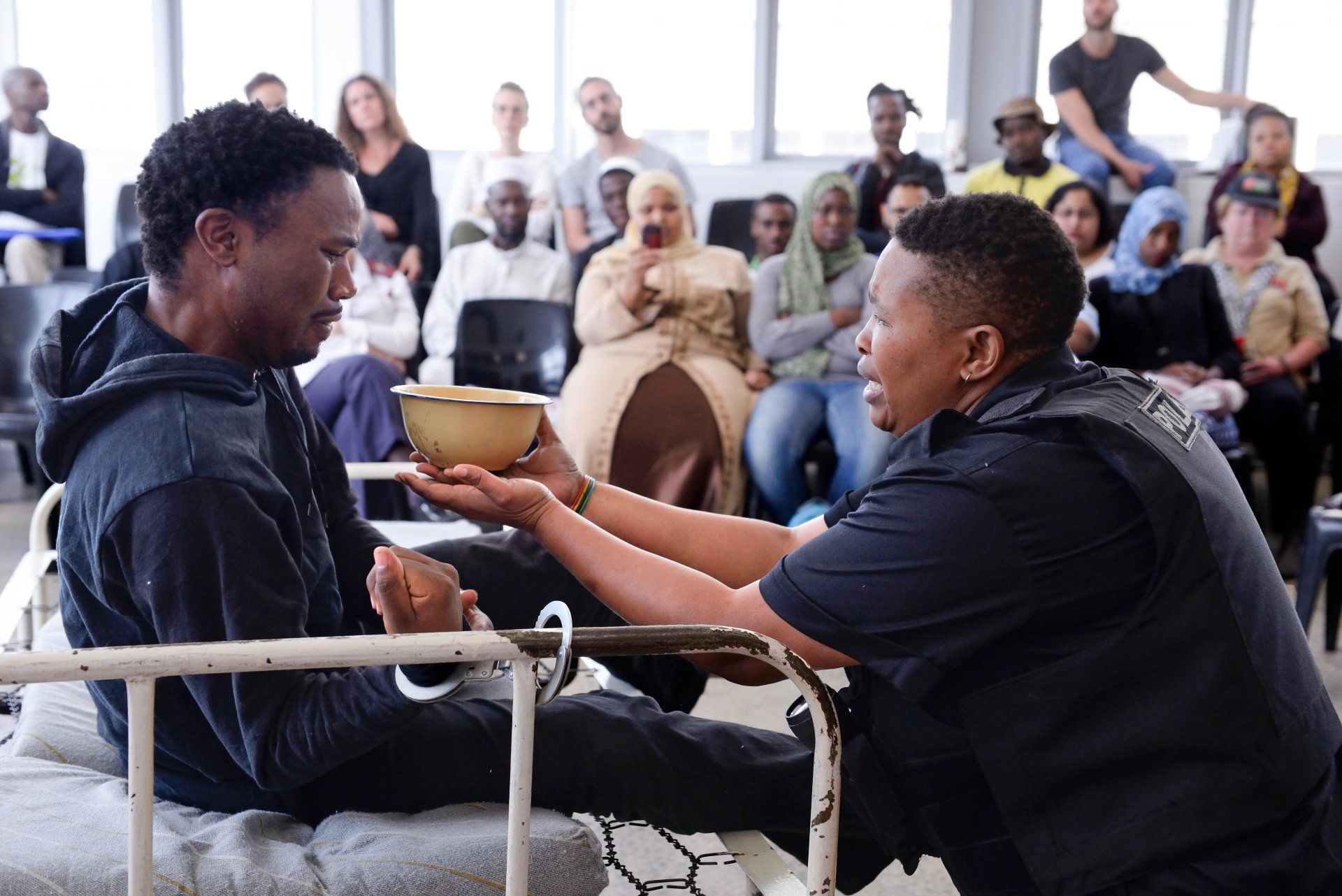
Slide title
Over the duration of its five year run, Ulwembu was performed at a range of drug policy conferences, community meetings, church halls, open-days, homeless shelters, rehabilitation centres, universities, state-of-the-art theatres, suburban art-galleries, and on one occasion, a children’s playground with the jungle-gym net improvised into the blocking of the play. In this image, Portia (Mpume Mthombeni) attempts to get her son Sipho (Zenzo Msomi) to eat. The Handcuff scene is inspired by true events, where a desperate mother-- to protect her son from the community’s outrage-- handcuffed him to a bed for a month. Denis Hurley Centre community performance. 2016. Pic by Val Adamson.
Button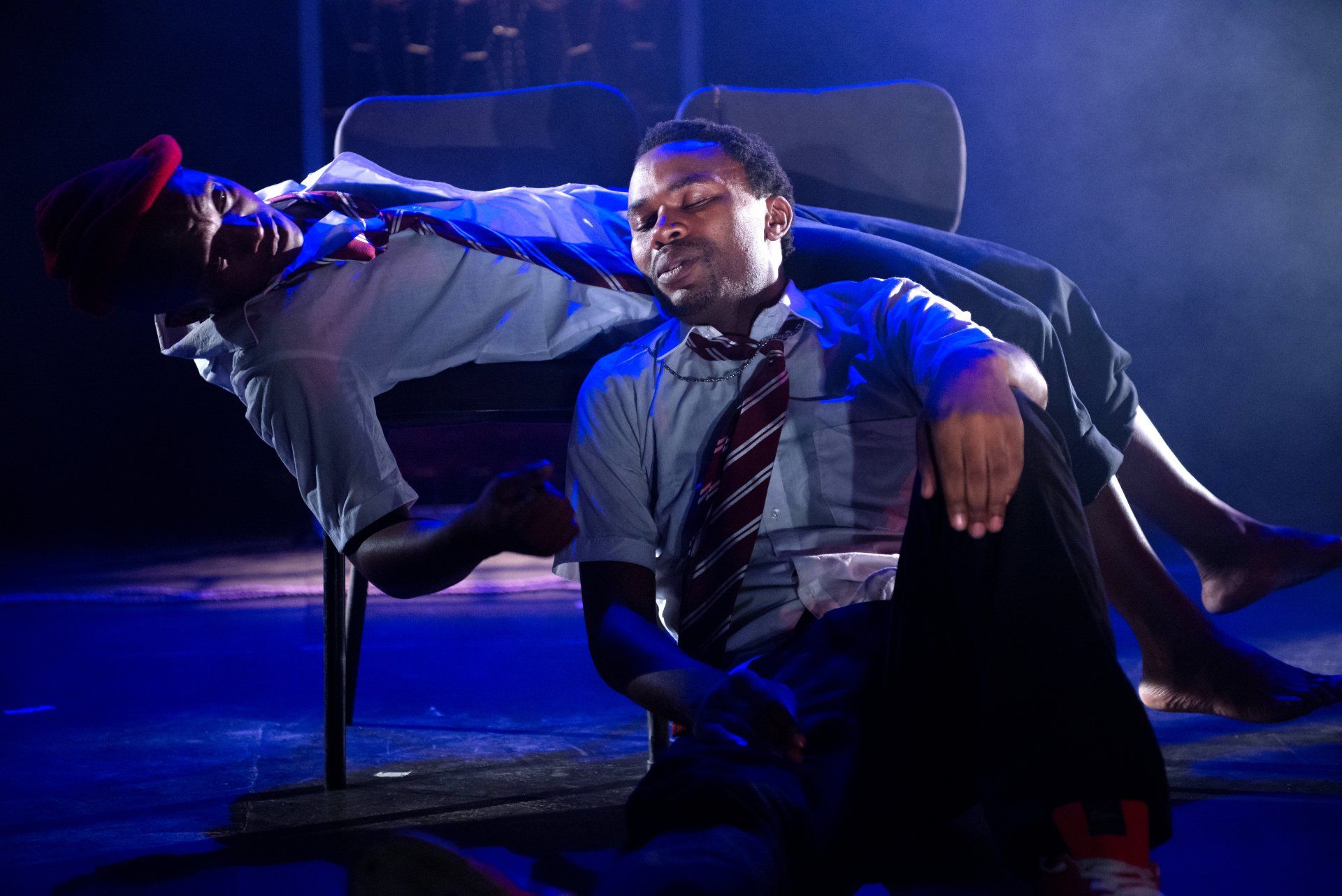
Slide title
Uwlembu in performance at the Playhouse Loft theatre 2016. Pic by Val Adamson.
Button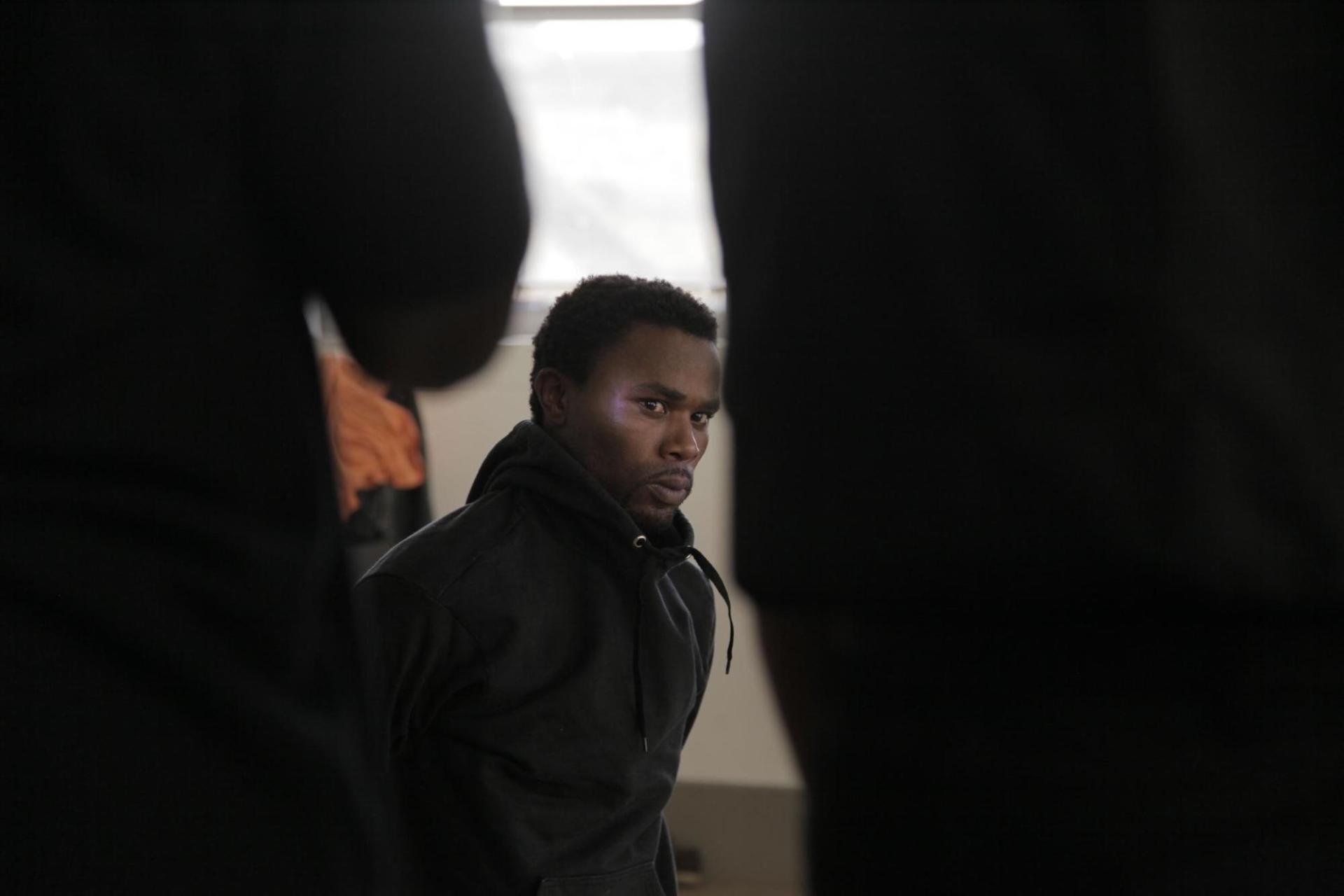
Slide title
Uwlembu rehearsals 2014 at the Denis Hurley Centre. Pic by Colwyn Thomas.
Button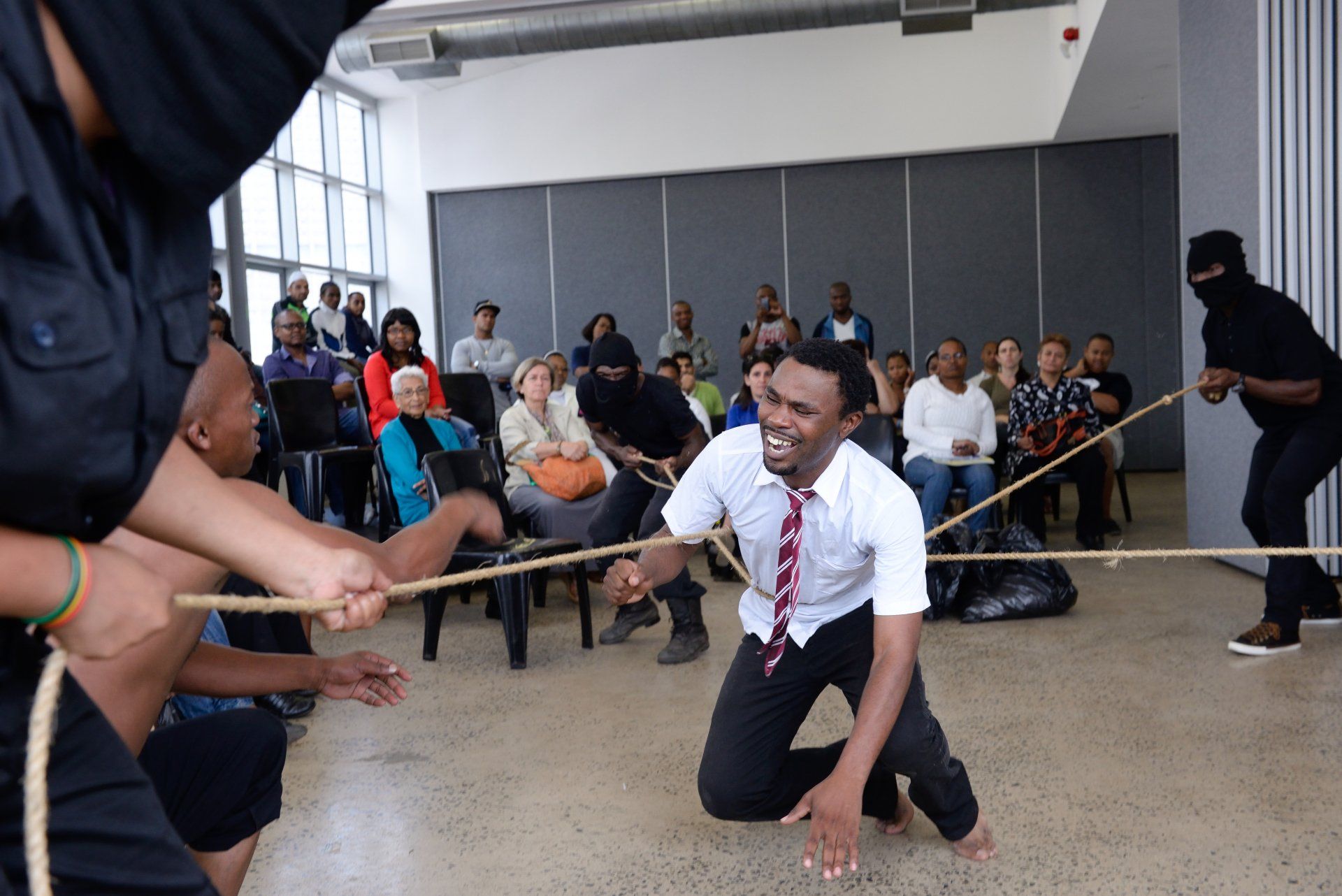
Slide title
Ropes wielded by the cast, tighten around the waist of Sipho (Zenzo Msomi). The image helped us reveal the invisible pain caused by the side effects of the drug known as Arosta, but also to the interconnectivity of our community, and how the pain of one person will ultimately influence someone else. If we want to respond to drugs effectively in Durban, we need to respond to it collectively. Here the audience (a gathering of family members, health practitioners, users, and the police) watch the downward spiral of Sipho and Andile. Denis Hurley Centre Performance 2016. Pic Val Adamson.
Button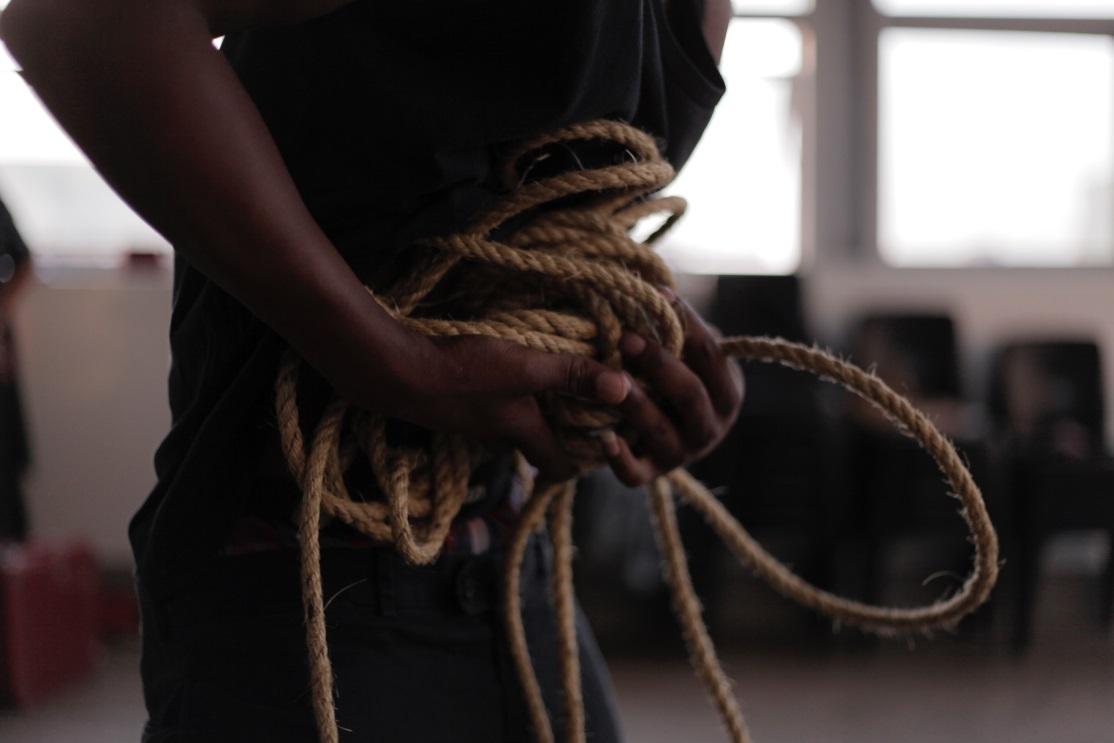
Slide title
Tangled ropes demonstrate the knot of intestines and painful cramps endured by Andile (Ngcebo Cele): “A dark cloud has settled over me. My intestines writhe and rise up through my neck. My vision blurs, obscured. I am no longer in my body. I melt into nothingness; I am brittle like grass in winter. If I cry who will hear me, a dark cloud has settled over me.” Rehearsal at Denis Hurley Centre 2015. Pic by Colwyn Thomas.
Button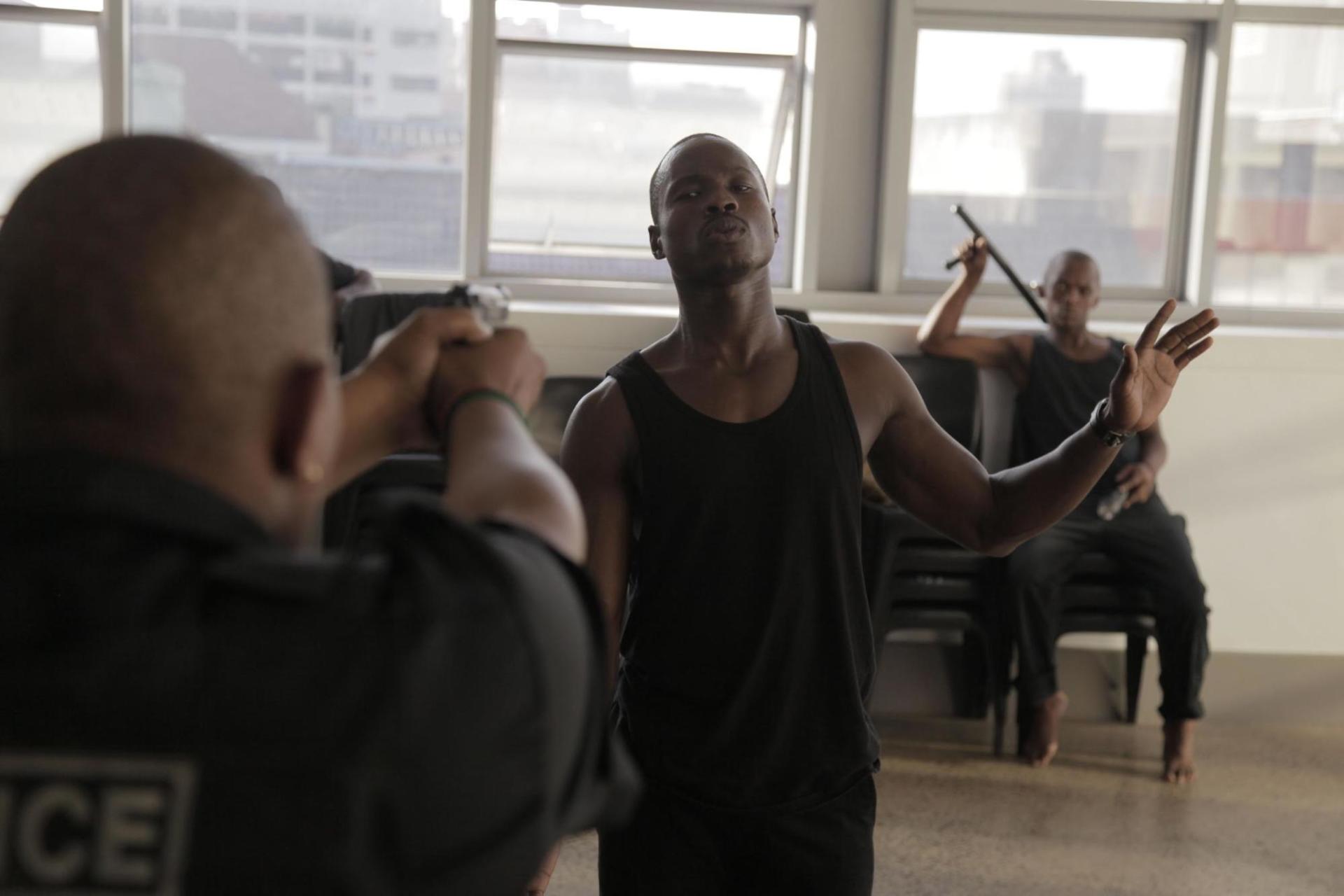
Slide title
Uwlembu rehearsals 2014 at the Denis Hurley Centre. Pic by Colwyn Thomas.
Button
Ulwembu
Mhlaba noLahle / Soil & Ash
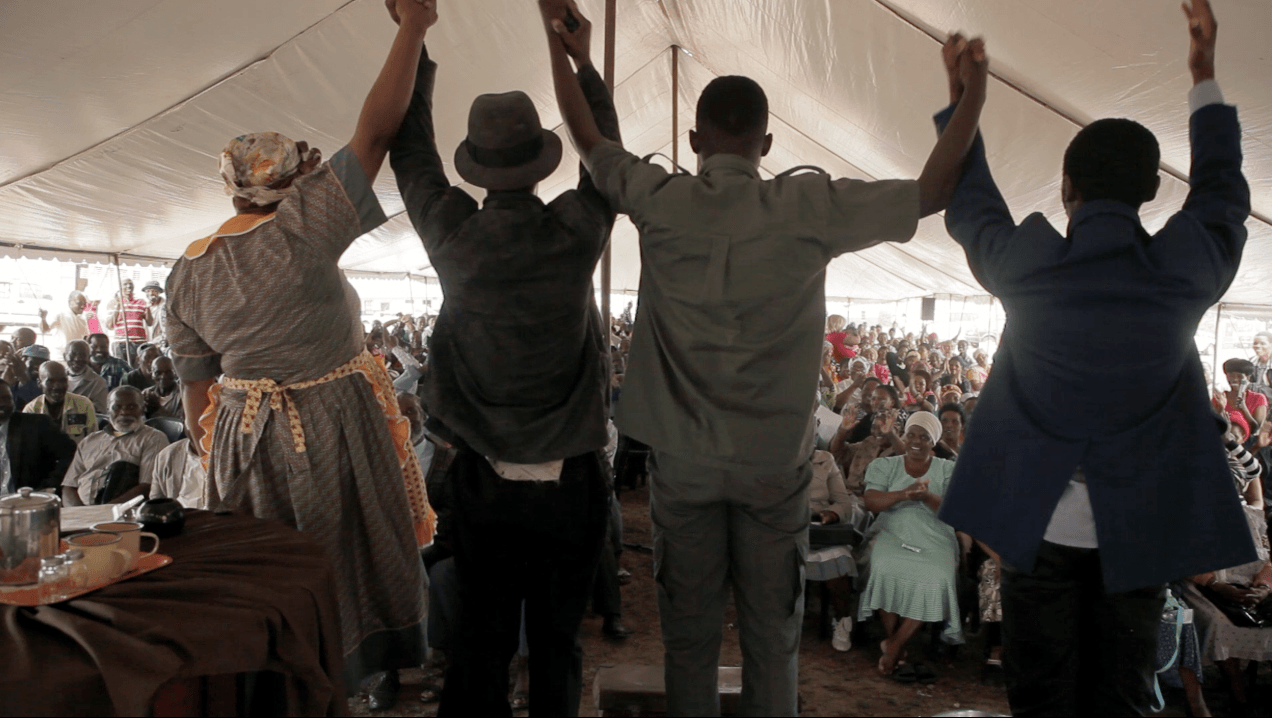
Slide title
Empatheatre actors (Mpume Mthombeni, Simo Majola, Andile Mcanga and Menzi Mkhwane) take their final bows in Mhlaba Nolahle before the Fuleni community. Pic by Colwyn Thomas
Button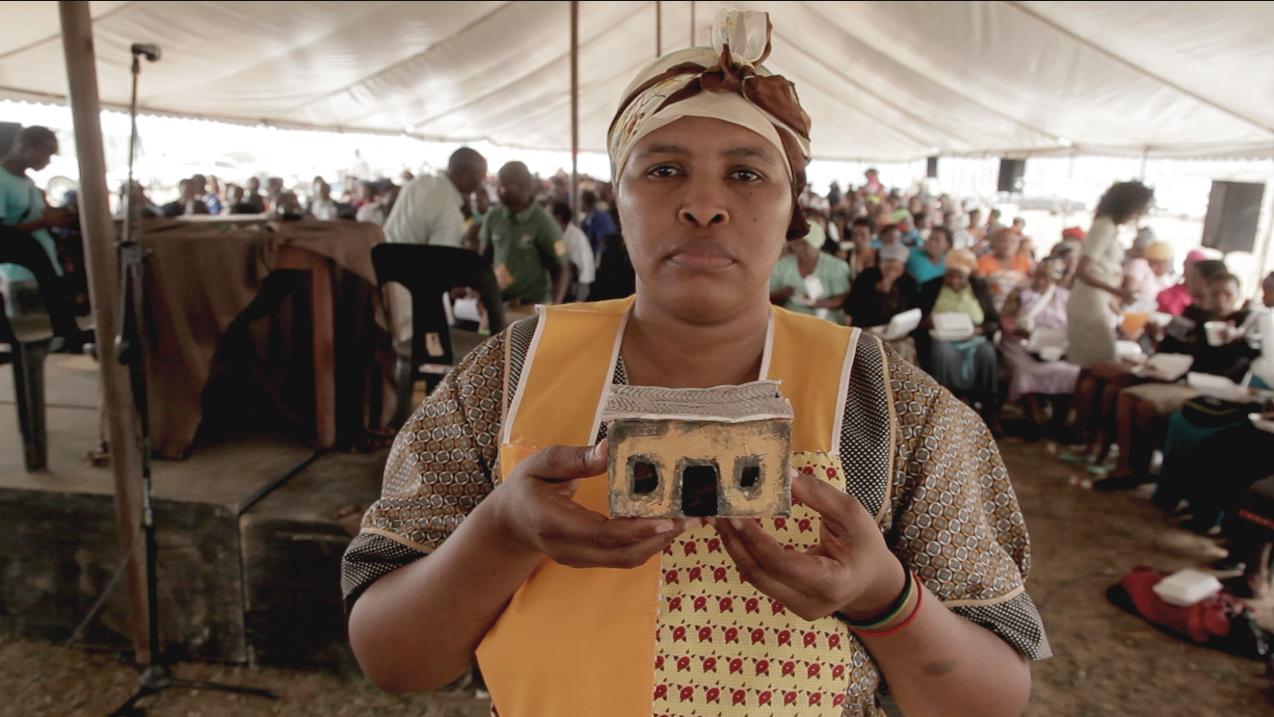
Slide title
Mpume Mthombeni as MaDlamini in Mhlaba Nolahle. The character of MaDlamini in the play was applauded by younger audiences for standing her ground and not picking sides with her sons. It was important to learners, at the various schools we performed at, that MaDlamini gave both her children a fair chance to share their opinions and feelings on the mine. Pic by Colwyn Thomas.
Button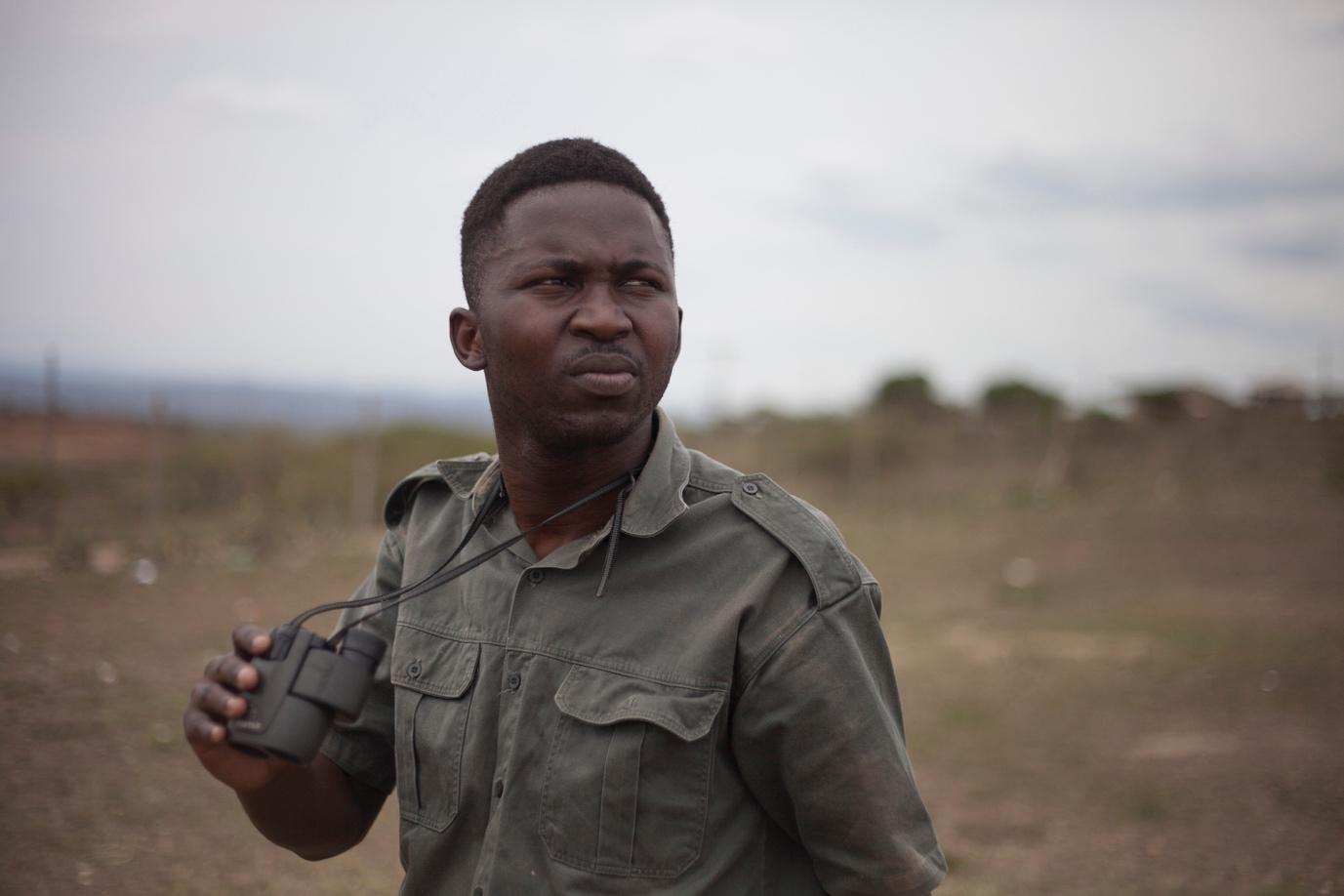
Slide title
Andile Mcanga as Mhlaba in (Soil and Ash). Pic by Colwyn Thomas
Button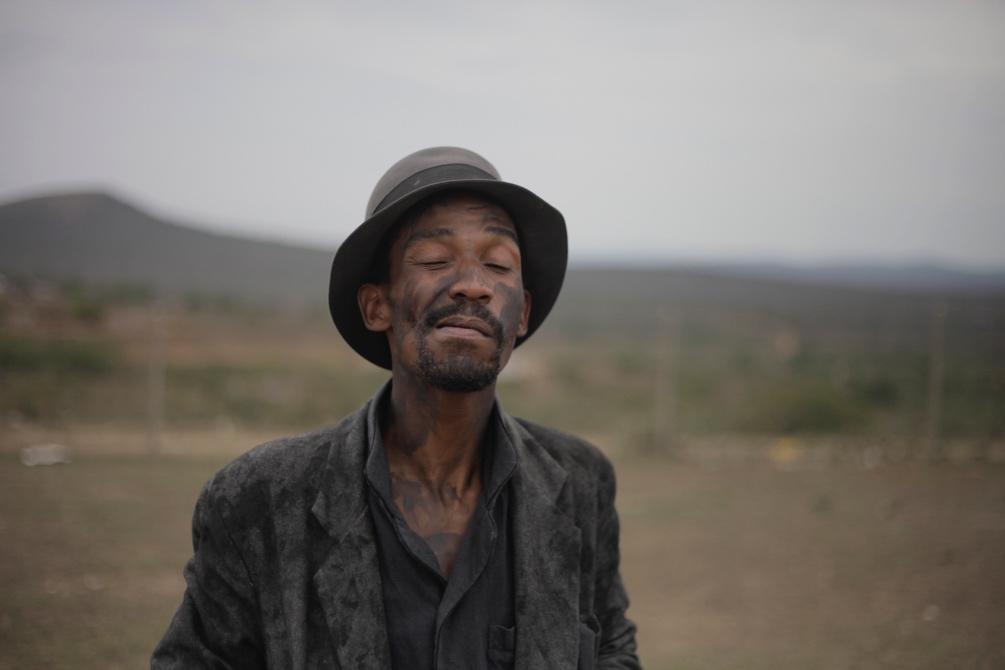
Slide title
Simo Majola as Khulu Magwaza, an elder who brings with him a powerful story that will challenge the beliefs held by various members of the Dlamani family whilst connecting them to a healing ancestral secret from their past. Pic Colwyn Thomas.
Button
